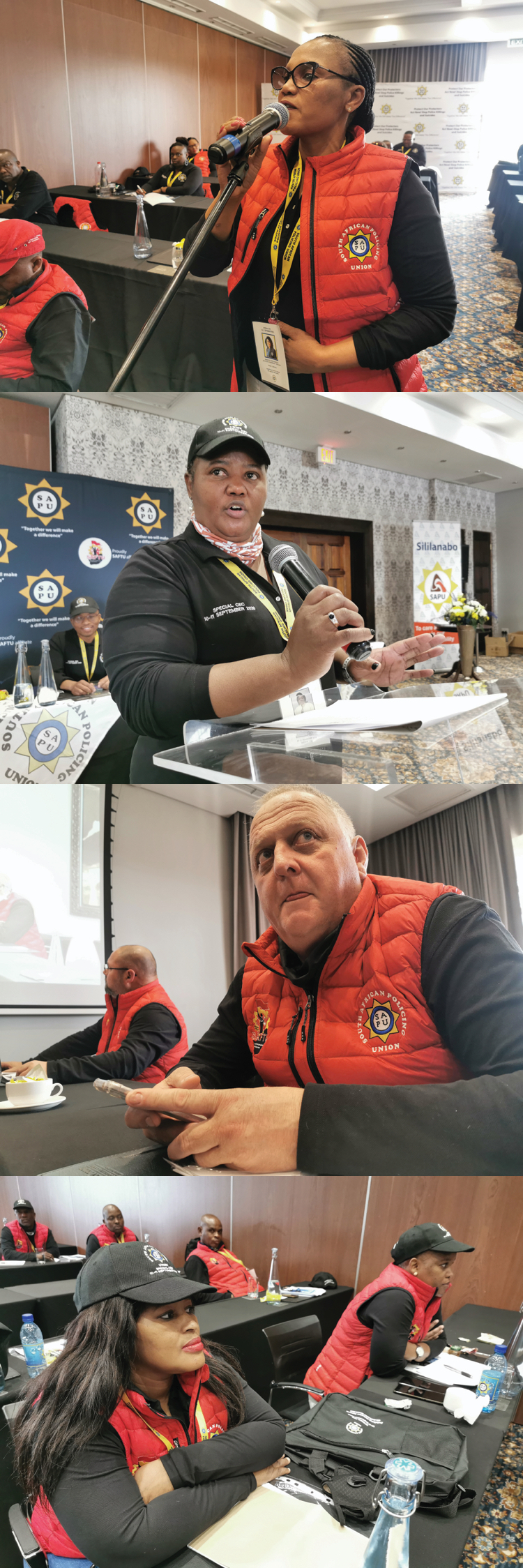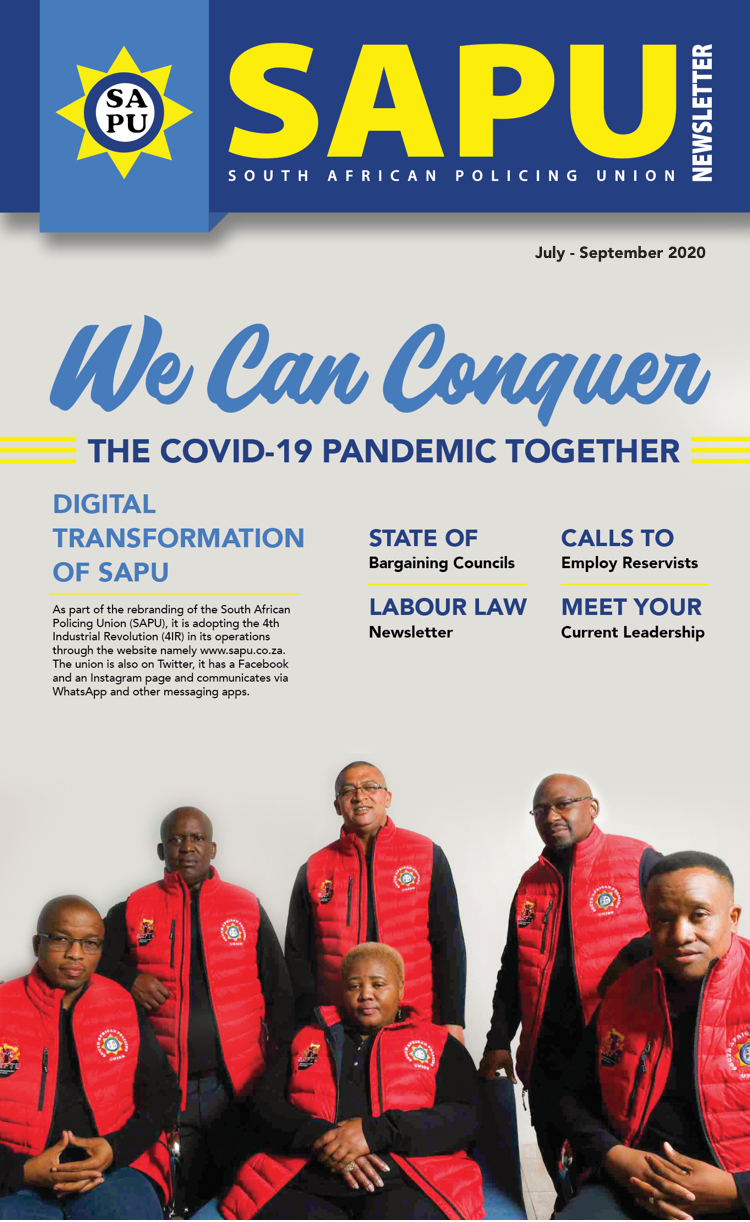





















The views and opinions expressed in the articles are not necessarily those of SAPU.
Copyright SAPU. All rights reserved. No part of this publication may be reproduced in any form and by any means, electronic or mechanical, including photocopying without permission in writing from SAPU.
Editor-in-chief
Tumi Mogodiseng (SAPU GS)
SAPU Editorial Team
Peter Ntsime and Nadia Rynners
Publishing and Editorial Services
by Lebo Zulu Creatives on behalf of SAPU
Contacts: Nobamba BA Lebo Zulu 0656017055
Layout, Design and Printing
Digital Publications
The South African Policing Union
85 & 87 Rauch Street, Georgeville, Pretoria
Private Bag X900, Pretoria, 0001
Tel: 0861 927278
Fax: (012) 804-3017
E-mail: pa.hq@sapu.co.za
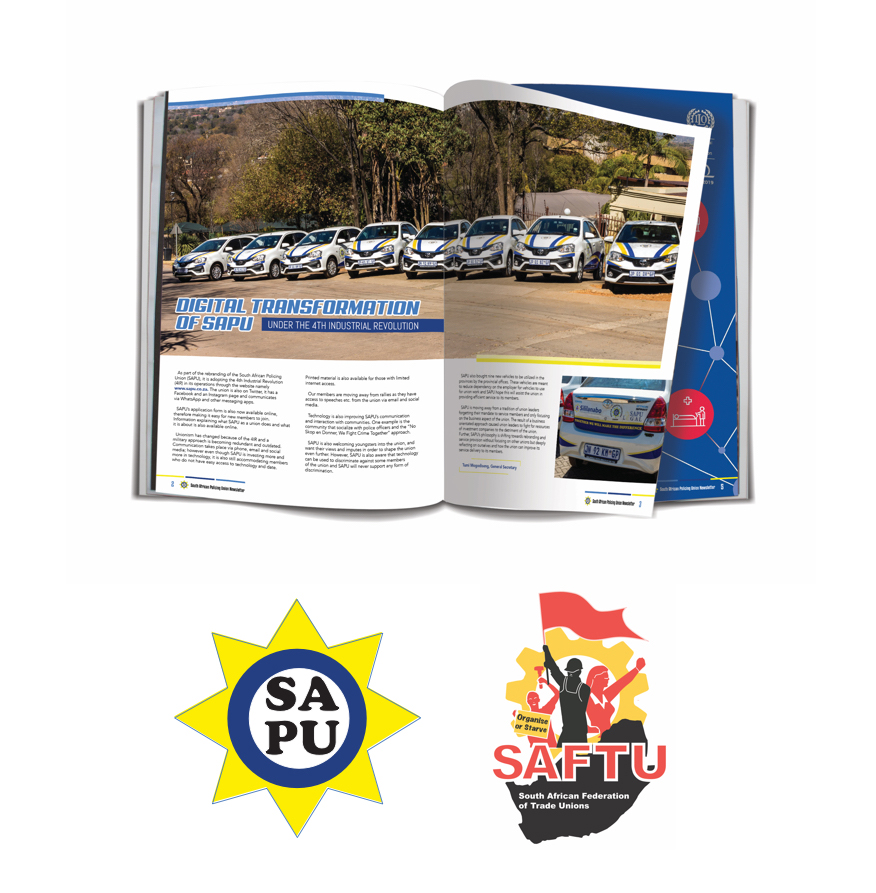


Over the years this newsletter has provided you with news about the South African Policing Union (SAPU) and the key role that the union plays in policing matters in the country. In 2020 the newsletter continues to play the same important role but under a different media environment. We are now in the digital sphere of the 4th Industrial Revolution; where we have digital platforms like Facebook and Twitter, and social media like WhatsApp and Instagram. This digitalization allows for the sharing of news and information through our smartphones and allows for information to travel faster within a short space of time. Its is now easy to share photo albums and short videos unlike before.
Of course, at this point we will take the opportunity to remind our members that they must always get information about SAPU from our official channels to avoid cases of them getting fake news and information which is not accurate. Our national and provincial offices are there to provide you with the service that you need and we recently bought a fleet of cars to ensure that our provinces will be able to reach you even in the furthest corners of our vast country.
We also now have digital meetings on different platforms because of the Covid-19 pandemic that has seen campaigns for social hygiene especially handwashing, sanitizing hands, and wearing of masks to prevent the spread of the coronavirus. Social distancing now means that we have remote or virtual meetings over the computers instead of our usual face-to-face meetings. Further our recruitment and organizing is now happening on online platforms where members can simply go to the SAPU website www.sapu.org.za and download the membership forms.
Digital technology does not mean the hard work of stopping crime only happens online. You also need to be visible as a police force to deal with crime which is the proud work that our members are doing under the harsh conditions of the Covid-19 environment. Therefore, we are welcoming better quarantine sites for our members and fighting for them to get special allowances as essential workers during this pandemic.
Further, SAPU agrees with the national President Cyril Ramaphosa, that gender-based violence in the country must be ended. Ramaphosa Tweeted: “We are in the process of strengthening our criminal justice system to deal more effectively with gender-based violence and femicide by employing more personnel, providing better training and resources for police, court official and medico-legal staff who deal with such cases.” As part of the campaign to end gender-based violence amongst the membership, SAPU Acting President Thandi Mkhize is involved in sensitizing members to build strong relationships with their families through dialogue and to explore peaceful ways to resolve disputes.
Your leadership remains at your service to ensure that your rights as workers are protected and this means getting legal representation when you need it. We have remained active in the Safety and Security Services Bargaining Council and the Public Service Commission Bargaining Council to protect your rights and interests as SAPU members.




As part of the rebranding of the South African Policing Union (SAPU), it is adopting the 4th Industrial Revolution (4IR) in its operations through the website namely www.sapu.co.za. The union is also on Twitter, it has a Facebook and an Instagram page and communicates via WhatsApp and other messaging apps.
SAPU’s application form is also now available online, therefore making it easy for new members to join. Information explaining what SAPU as a union does and what it is about is also available online.
Unionism has changed because of the 4IR and a military approach is becoming redundant and outdated. Communication takes place via phone, email and social media; however even though SAPU is investing more and more in technology, it is also still accommodating members who do not have easy access to technology and date. Printed material is also available for those with limited internet access.
Our members are moving away from rallies as they have access to speeches etc. from the union via email and social media.
Technology is also improving SAPU’s communication and interaction with communities. One example is the community that socialize with police officers and the “No Skop en Donner, We Fight Crime Together” approach.
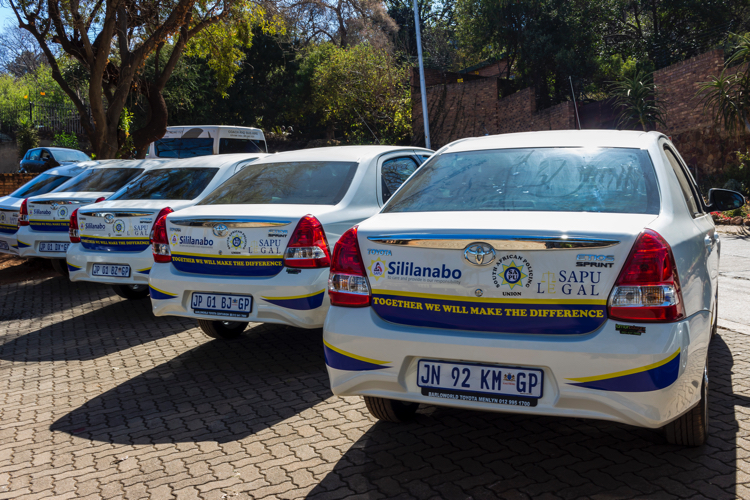
SAPU is also welcoming youngsters into the union, and want their views and imputes in order to shape the union even further. However, SAPU is also aware that technology can be used to discriminate against some members of the union and SAPU will never support any form of discrimination.
SAPU also bought nine new vehicles to be utilized in the provinces by the provincial offices. These vehicles are meant to reduce dependency on the employer for vehicles to use for union work and SAPU hope this will assist the union in providing efficient service to its members.
SAPU is moving away from a tradition of union leaders forgetting their mandate to service members and only focusing on the business aspect of the union. The result of a business orientated approach caused union leaders to fight for resources of investment companies to the detriment of the union. Further, SAPU’s philosophy is shifting towards rebranding and service provision without focusing on other unions but deeply reflecting on ourselves and how the union can improve its service delivery to its members.


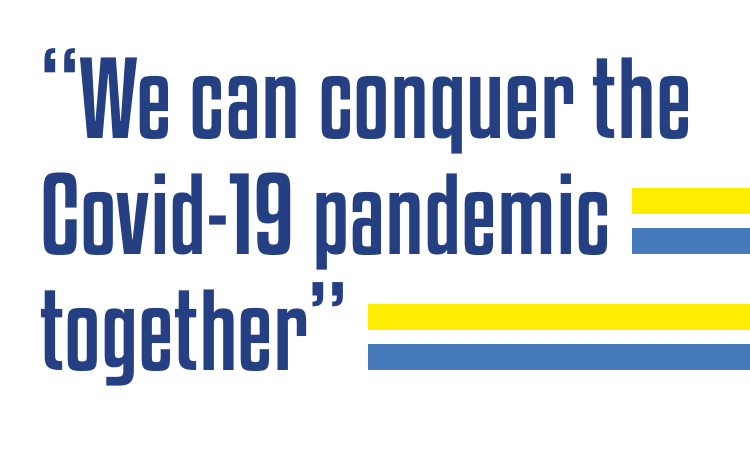
The Covid-19 pandemic has adversely affected our members especially police officers who are frontline workers of which some have lost their lives due to this illness, therefore SAPU has raised this issue with SAPS management. Some of our members have underlying diseases such as diabetes and hypertension that make them more susceptible to suffer from severe and mild symptoms of Covid-19.
However, as the South African Policing Union (SAPU) we are aware of the health and safety challenges involved in policing and crime prevention. For instance, arresting a criminal suspect involves contact and, in such circumstances, social distancing is impossible.
We are calling for an improvement in the health and safety protocols to stop the spread of the coronavirus within the SAPS. For example, vehicles should be sanitised when officers are changing shifts, and there should be proper and adequate PPE equipment available for each and every member. SAPU is handing out PPEs to its members and so far 10 000 sanitisers and 10 000 masks have been distributed to the Covid-19 epi-centers in the Gauteng and Western Cape provinces.
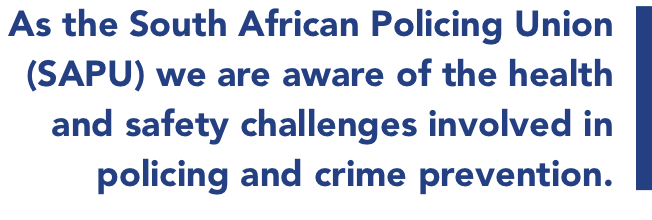
Unfortunately, SAPS management is not treating this pandemic with the seriousness that it deserves. Even though Steering Committee have a place, these type of meetings are not addressing the real problems and it is therefore very important that SAPS management should meet with officers and workers on ground level to communicate with them regarding issues, challenges and problems that they are experiencing and assisting in meeting their needs.
SAPU is aware that there are endless issues that we must deal with since the National State of Disaster was announced in South Africa and one of the more difficult ones are the stigma that is associated with the virus and the ignorance of members to understand that literally anyone can contract the virus, and it does not matter if you are wearing a uniform or not.
SAPU’s plea with its members is therefore to protect themselves and follow the World Health Organisation safety measures of always wearing a mask in the correct manner, to keep social distancing and frequently wash their hands for at least 20 seconds with soap and then to sanitise after. Members must guard against exposing themselves to the virus while their employer is failing to provide them with the proper personal protective equipment.
Further, police stations should have glass installations that protect officers from having close contact with members of the public that enter and visit the station.
We would also like the Safety and Security Sectoral Bargaining Council (SSSBC) to resume as soon as possible to deal with Covid-19 issues because its decisions are binding. For example, members not appointed through the Police Act initially got an allowance of R400 which was later withdrawn without consulting the unions. This is the problem with agreements that are not binding to the employer; and this is where the SSSBC is important.
We are also calling for decent quarantine sites for police officers where chaplains and union leaders can talk to members about the stigma and surrounding being infected with Covid-19. Placing police officers in quarantine in colleges is not conducive to recovery. SAPU is wondering why the government cannot give preferential treatment to frontline officers in the same way that they gave to the 114 citizens who were repatriated from Wuhan, China. They were quarantined at a decent hotel in Limpopo with all the facilities they needed for recovery.
SAPU can therefore conclude that there is little care given to the welfare of police officers. But the authorities must always be reminded that without the police crime can get out of hand. It is important for the authorities to be reminded of the chaos that will prevail if there are no police officers to fight and combat crime. Therefore, SAPU is calling for SAPS management to re-open the training colleges for police students. Reservists who are currently working as volunteers should be employed in various ranks, and those who resigned should be accepted if they re-apply to join the force. Involving members of the community in policing should be done as well.
Covid-19 provides us with an opportunity to rise above cheap politics and work together for our country. Together we can conquer the Covid-19 pandemic.




In August 2020, Women’s Month falls within the middle of the Covid-19 pandemic where some of SAPU’s members have passed on including izimbokodo at the frontline of implementing prevention measures to stop the spread of the coronavirus.
Unfortunately, too many lives of members were lost due to the corona virus up-to-date, therefore SAPU is even more appreciative towards each and every woman that is standing tall to fight this pandemic even at cost of their own health. No one could have predicted that the world will be facing a worldwide devastating pandemic in 2020.
Essential works such as police officers, metro police officers and correctional service employees to name a few are expose to the dangerous and deadly virus on a daily basis as their work involves face-to-face contact of members of the public. Social distancing is almost impossible, therefore SAPU is demanding the provision of adequate personal protective equipment, face masks, face shields, sanitizers, gloves, and body suits where necessary to save the lives and provide health and safety to the frontline workers.
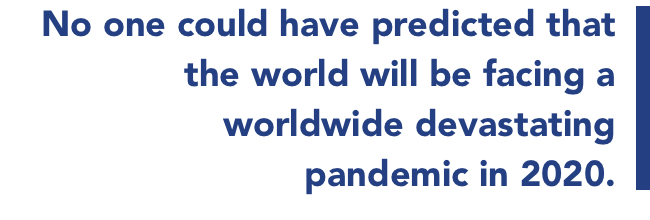
Further, it is disheartening to realise that women had and still continue to experience more violence in the hands of their intimate partners and in their homes during the lockdown period. Violent men have attacked women and children, which is why SAPU is going to campaign as a union for families to live safely in their homes and for perpetrators of violence to be arrested and dealt with according to the law.
The cases of Tshegofatso Pule, a 28-year-old pregnant Sowetan woman who was stabbed to death and 17-year-old Amahle Quku who was raped and murdered in Phillipi, Cape Town are just some of the too many heartbreaking and horrific cases an SAPU trust that justice will prevail even though no justice for them will bring them back. According to statistics a woman is killed every three hours and in 2019, 87 000 cases of gender-based violence were reported to the police throughout the country.
During women’s month SAPU salute the women of South Africa for their contributions to the social and economic development in the country as well as recognising the struggles of their forebears such as the 20, 000 women of 1956 who confronted the apartheid regime by their rejection of the dompas and pass laws. The women’s March of 9 August 1956 laid the foundation for women’s struggles against the apartheid regime and since then many women have followed along their path having been inspired by their fearlessness and resilience.
Today SAPU draws from the same courage as it fights Covid-19 and gender-based violence.

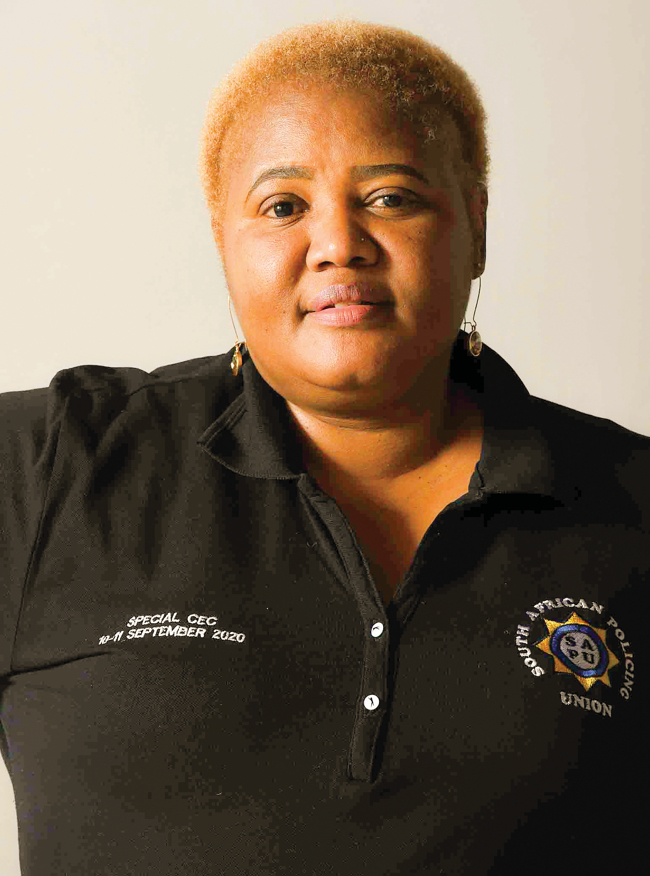


SAPU would like to inform its members of the recent changes in the leadership of the South African Policing Union (SAPU).
In unions, as in most organisations, leadership renewal is necessary, and learned from Nelson Mandela, South Africa’s first national president after the democratic breakthrough in 1994, who served only one term as President.
Leaders should know when to leave on their own rather than to face unceremonious departures.
It is very important for us to learn from Madiba in this regard. Union leaders are not traditional leaders and we need to deliver services to members who will decide on the leadership that they want and also according to the constitution of the union.
Here is the current leadership:
• Acting President: Thandi Mkhize
• Acting Deputy President: Thabo Matsose
• Acting 1st Vice President: Kgaogelo Magagula
• 2nd Vice President: Ivan Magerman
• General Secretary: Tumi Mogodiseng
• Acting Deputy General Secretary: Peter Ntsime

The CEC has resolved that the current leadership leads until the next national congress.
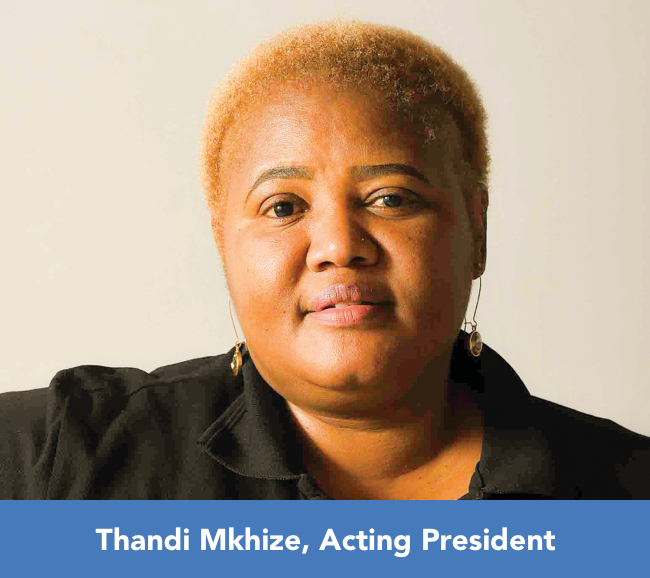
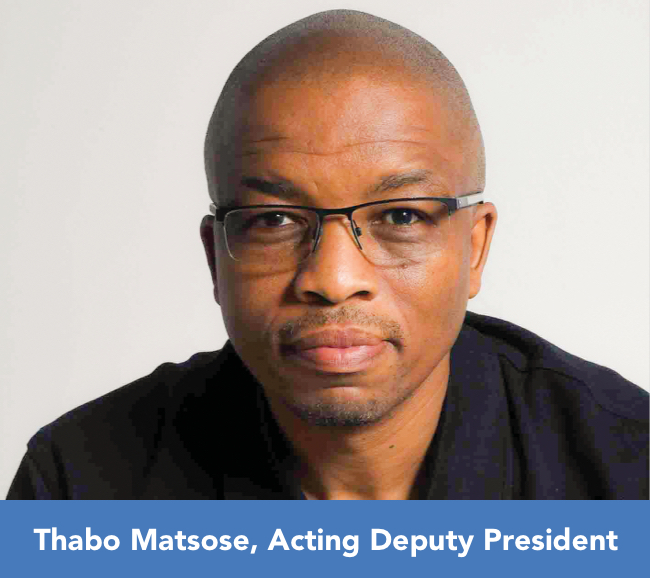

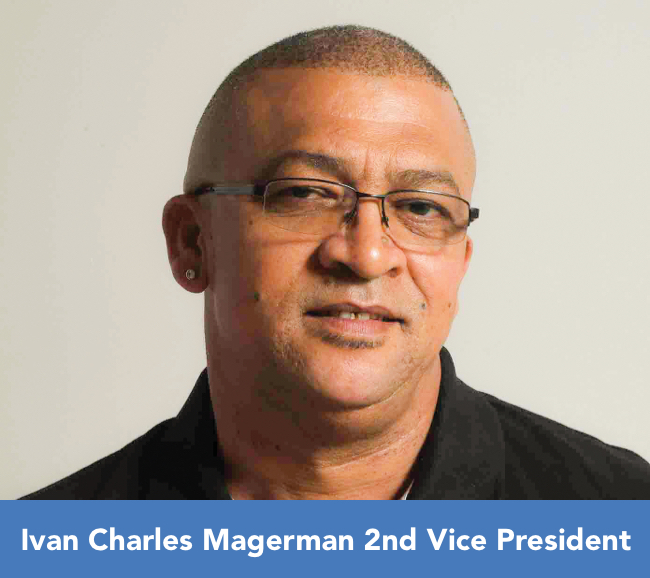
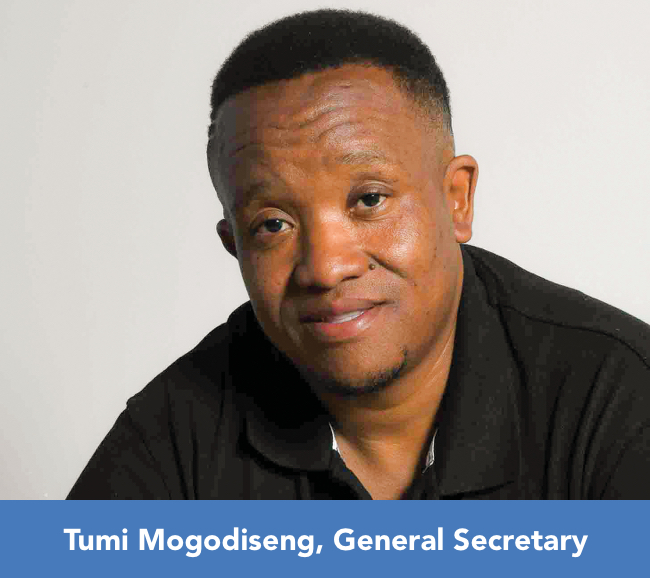
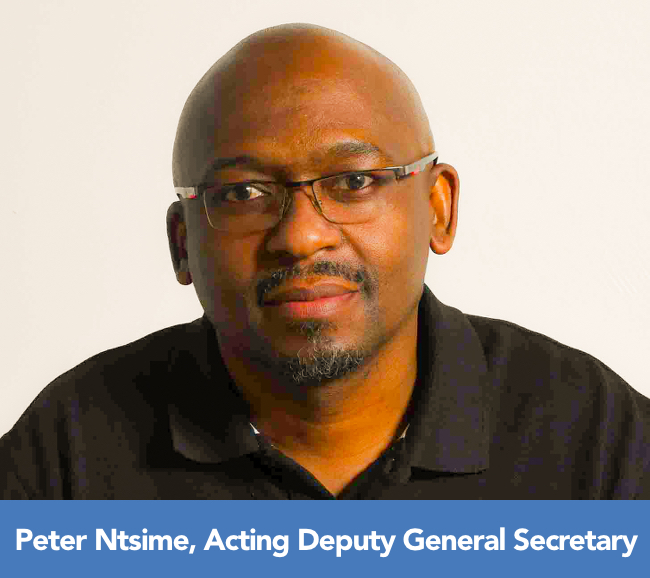

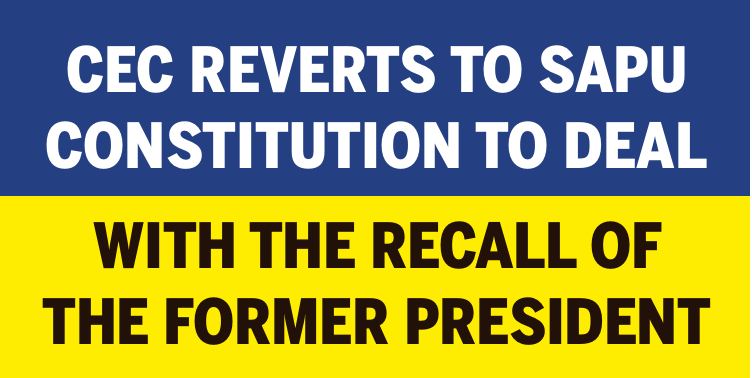
The purpose of the Special Central Executive Committee (CEC) of the South Africa Policing Union (SAPU) held on 10-11 September at Irene, Centurion, and attended by 73 delegates from the country’s nine provinces was to provide feedback on the challenges facing the union. The main issue being the National Executive Committee (NEC) decision to recall former president Mpho Kwinika.
According to the SAPU Constitution, the quorum for a Special CEC shall be a majority of at least 50% plus one of the provinces represented in terms of Chapter 5 Section 2.4.5. Therefore, the Special CEC had a quorum.
Tumi Mogodiseng, SAPU General Secretary said the Special CEC had to meet because disinformation was rampant. “With social media interpretations providing misinformation and distortions on the issue, we felt that as SAPU we had to set the record straight. Otherwise we faced a danger that if posts on social media were not challenged, our members might start believing the fake information as correct.”
“During the deliberations, the CEC advised that we must follow the recommendations of the first judgment to reinstate the former president but subsequently subject him to disciplinary processes for bringing the organisation into disrepute. This will be done according to the SAPU Constitution.”
The CEC also discussed the court challenges by the former president and referred to the two judgments that were won by SAPU.
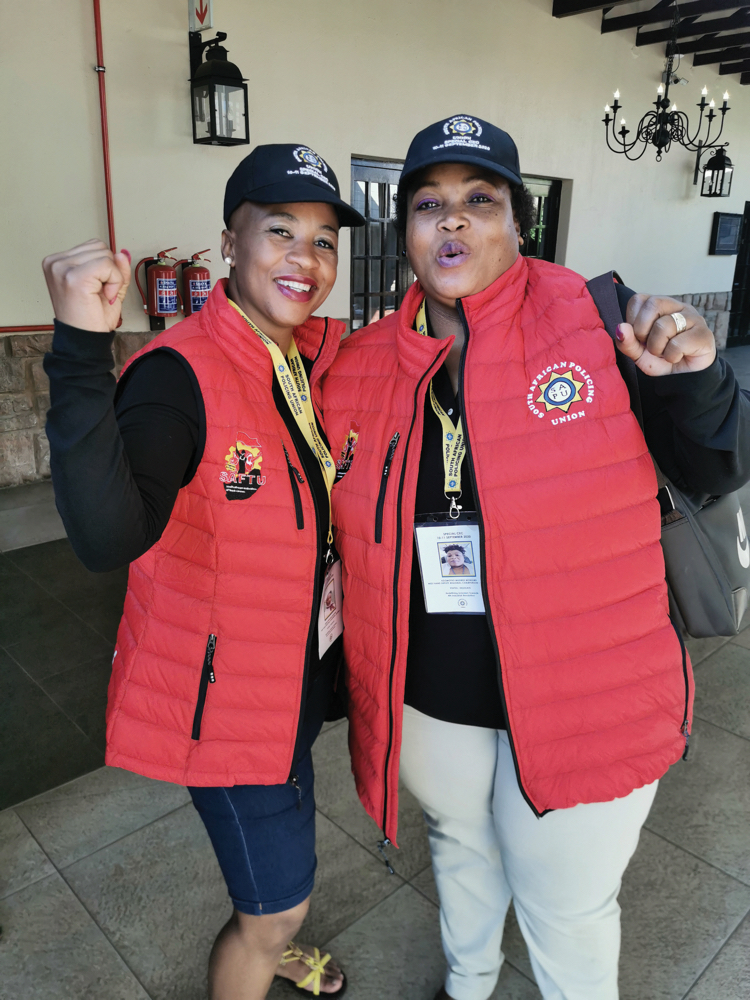
In an electronic judgment of the Labour Court on 10 September Judge Andre Van Niekerk dismissed the former president’s application to stop the convening of the CEC: “Further, I am not satisfied that the applicant has established that he will suffer irreparable harm should the meeting proceed. For the reasons recorded above, any decision by the CEC will not have the effect of irreparably violating any rights that flow to the applicant from the terms of the judgement. Regardless of the decision that the CEC takes, if the court’s judgement is ultimately upheld, the applicant will be entitled to enforce it in terms of the mechanisms available by way of contempt proceedings.”
“For these brief reasons, in my view, the applicant has failed to establish a right to interim relief, and the application stands to be dismissed.”
In the earlier judgment on 26 August the Labour Court’s Judge D. Mahosi also dismissed the application by the former president. Among other things, the judgment notes that the former president is disingenuous.
“The contention is disingenuous in that although the applicant denies most of the allegations regarding what happened on 13 August 2020, he confirms that Mr Kwinika drafted and emailed the suspension letter to Van der Merwe with an intention to issue it to the General Secretary. This is clearly not an action of a person who has an intention of bringing unity to the union. His conduct, post the delivery of the judgement, has the potential of perpetuating division within the union.”
The judgment noted the merits in the SAPU arguments: “There is merit in the union submission that Kwinika’s action has the effect of breaking down the trust between Kwinika and the very same people that he must work with if leave to execute were to be granted. This would surely not only cause irreparable harm to the union but would also destroy the union as there is a need for mutual trust and respect between the office bearers.”
The dismissal of the application was that there were no exceptional circumstances. “In this matter the applicant has failed to establish exceptional circumstances to justify the extraordinary and exceptional relief which he seeks, has not shown that he or Kwinika will suffer irreparable harm and further that the union will not suffer irreparable harm if leave to execute were granted. In the absence thereof, and on this basis only, his application stands to be dismissed.”
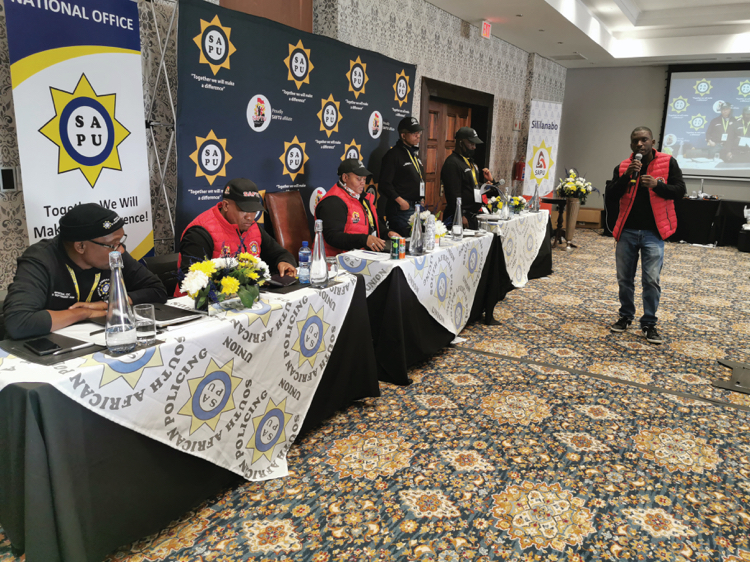
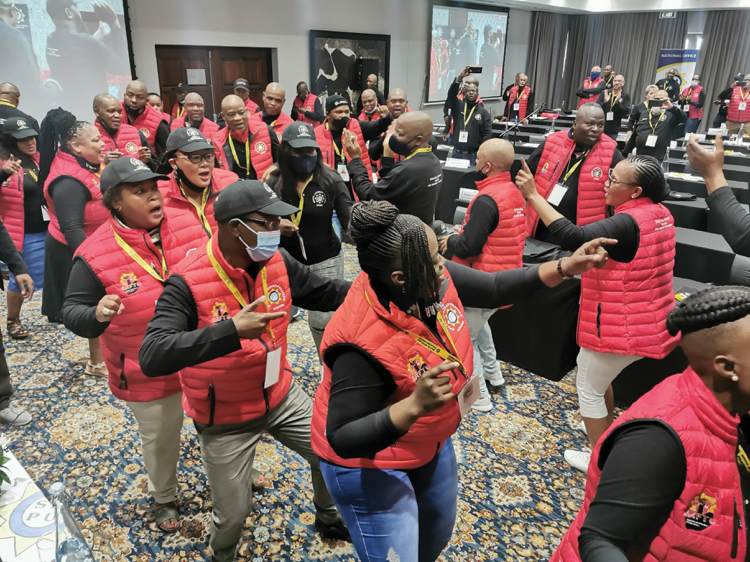


NEW IT MANAGER
Karabo Mashaba is the newly appointed SAPU IT Manager. He is an ICT Technologist with 17 years’ experience in the industry with more than 10 years at senior level. Mashaba worked for different organisations as an IT Specialist that include African Exploration Mining SOC (Ltd), Dimension Data, South African Breweries, and Genpact Pty (Ltd) to name the few.
He graduated from the Tshwane University of Technology and he was also part of the government skills acquisition program which landed him in India for a period of 12 months with SATYAM Computers. During his tenure in India he was certified as an ORACLE Database administrator and Information Technology Infrastructure Library (ITIL) technologist.
Mashaba is a registered member of the Information Technology Association of South Africa benchmarking on a progressive 4th Industrial Revolution for the society. Mashaba was an activist during his schooling as an SRC President and a member of the Congress of South African Students.
The SAPU family welcomes you.
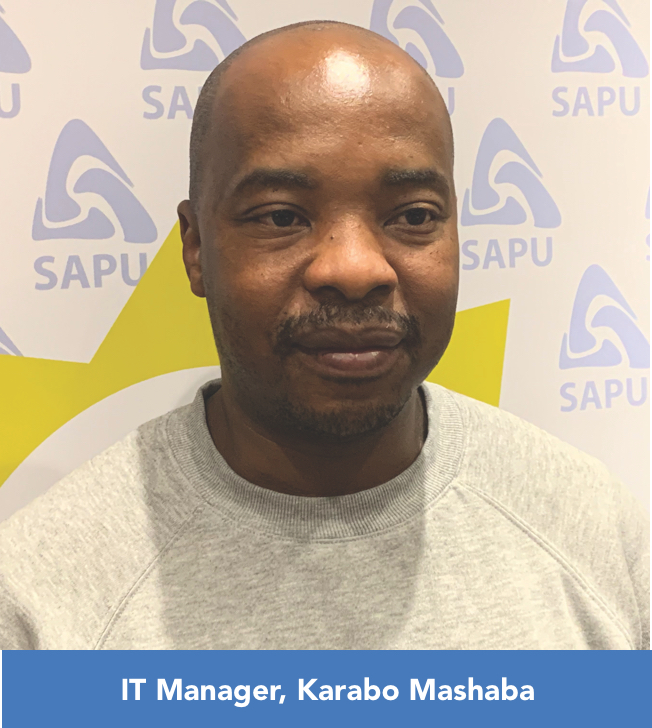

SAPU is delighted to announce new appointments in provinces. SAPU is dedicated to providing excellent service to its members.

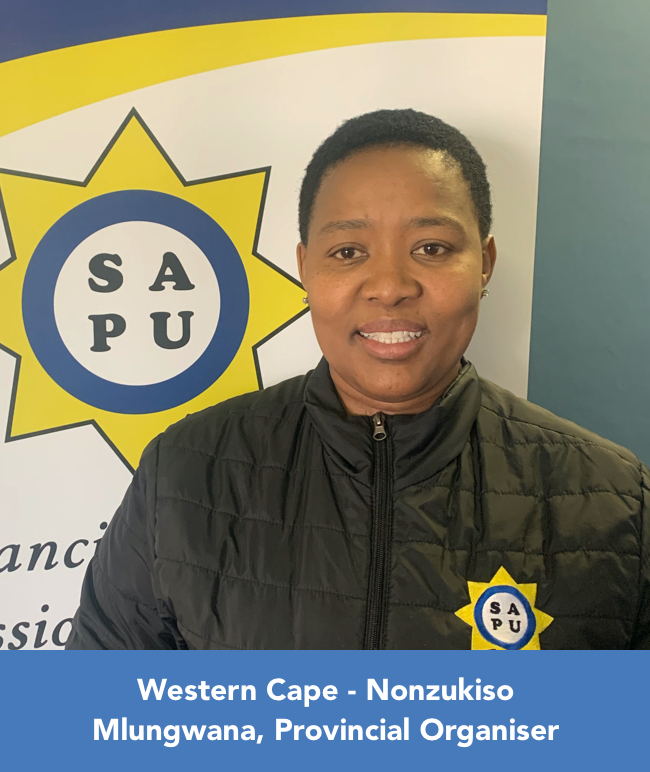
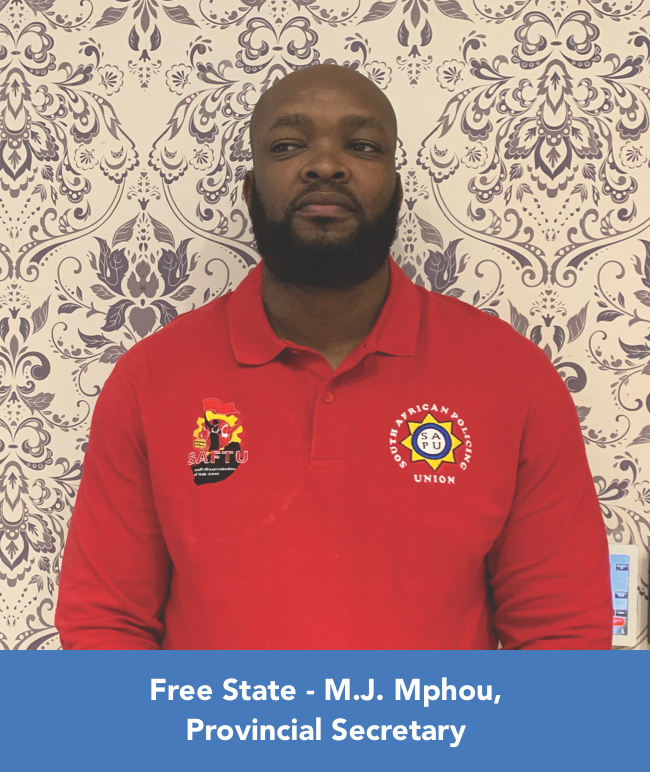

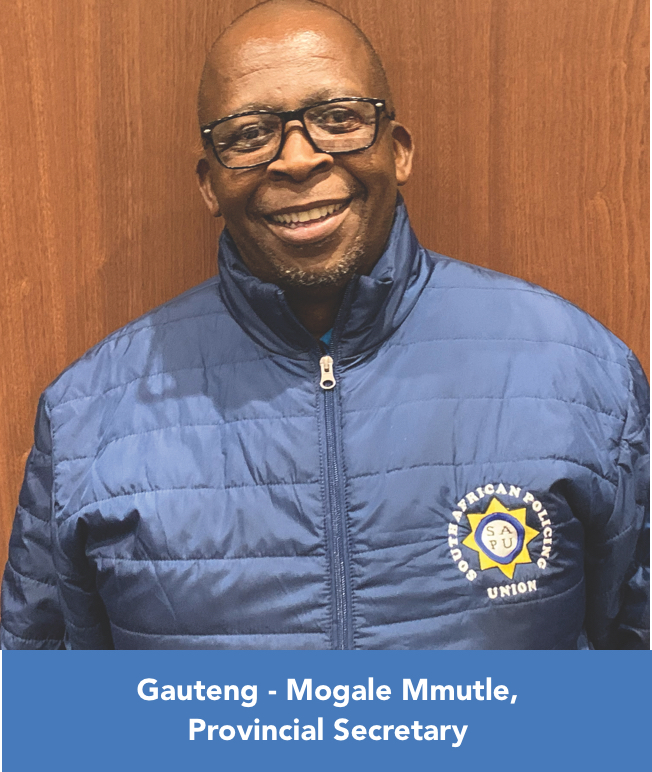


1. TWO SHOPSTEWARDS CHARGED FOR DOING THEIR DUTY: PSS KIMBERLEY
• Provincial Organizer is representing two shop stewards who were charged for acting on behalf of the union. This clearly shows that the NC PSS management do not follow their own procedures.
• It has come to our attention that this is because of the middle management that feed the top management with wrong information on how procedures are supposed to be followed when charging a shop steward in a workplace.
2. MEMBER SUSPENDED OVER FALSE ACCUSATIONS:
• A member is being represented by the provincial organizer who is currently suspended on a case from a criminal case where she is not even the suspect. She is being investigated by a fellow-colleague with a lower rank of a sergeant whilst there are warrant officers at that station.
• On another issue a high-ranking officer was charged with a criminal case and received bail of R2000 but hypocritically he is not being investigated and he even presides over cases.
3. WOMEN’S MONTH OPERATION IN HANOVER:
• A Woman’s Month Operation was held in Hanover on Friday 28 August by the District with members from the District as well as those from Hanover.
• The Operation consisted of two K-9, 12-POP, four FCS, one LCRC, one-stock theft and two officers from the District of which one was the Acting District Commissioner Brigadier Adonis. With 12 members of SANDF and four VISPOL and three detectives from Hanover. The Acting Provincial Chairperson of SAPU NC comrade Verdi Oliphant also attended. Mayor Stonga was also present as well as the District Municipality and a concerned Covid-19 community group from Hanover.
• Compliance inspections were conducted at several shops.
• A lot of expired goods was confiscated and booked in SAP13.
• The Operation was successful, and the members were all debriefed by Brig. Adonis.
4. WOMEN’S DAY OPERATION IN VICTORIA WEST
A Women’s Month operation under the Command of the Acting Pixley ka Seme district Commissioner, was conducted in Victoria West on Tuesday, 25 August, where in attendance was the Municipal manager of Ubuntu Municipality, the acting provincial chairperson of SAPU NC and other stakeholders.
The Operation kicked off with a compliance inspection in 12 tuck shops across all residential sections of Victoria West wherein a variety of food items were seized due to some having passed their sell by date and other handled in a manner that contravened the Disaster Management Act, Act 57/2002 and were booked in at Victoria West SAPS.
A vehicle check point on the N12 Victoria West CBD monitored compliance with regards to the National Road Traffic Act 39/1996 and the Disaster Management Act 57/2002 were also conducted. No fines were issued.


The South African Policing Union (SAPU) would like to call upon the South African Police Service (SAPS) management to seriously consider the urgent employment of police reservists into the SAPS to assist with declining numbers of active and functional police officers. SAPU is making this plea because of the alarming number of SAPS members that is daily being infected and those who are deceased due to COVID-19.
According to the latest statistics that Minister Bheki Cele made public on 15 July 2020 at a media conference, 7021 members contracted the virus to-date, 53 are deceased, 4949 are being quarantined, and 150 are being treated in hospital. The concern of the union is that there is no certainty or proof that SAPS has a legitimate plan of action to mitigate regarding the dramatic decline in the number of functional police officers because of the COVID-19 pandemic and the high number of SAPS members that is testing positive in a police force that is already under pressure.
SAPU is not by any means being alarmist or wanting to create unnecessary panic, but would rather be a part of brainstorming possibilities to create a solution to the problem and wants to highlight the fact that it does not want the SAPS to be caught off guard. The SAPS is an essential service that can ill afford closure as it will cause havoc which is an understatement as it is not a given that the country will ever be able to recover if such an extreme situation must ever materialise.
It is a well-known fact that the number of police officers in South Africa do not conform to the acceptable international ratio in terms of numbers. SAPU therefore trust that each police reservist who voluntarily offered to serve their country without any expectation of a reward nor permanent employment is a patriotic human being. The COVID-19 pandemic that hit the world without warning is an unfortunate event that no one in the world anticipated. But, taking into consideration that these police reservists have not received the basic police training, they still possess a certain knowledge in basic policing and therefore it will require less time and effort in providing them with the training that they still lack in comparison to training new recruits without any prior knowledge of policing. SAPU would like to put it on record that only those reservists who meet the basic requirements should be considered for employment.
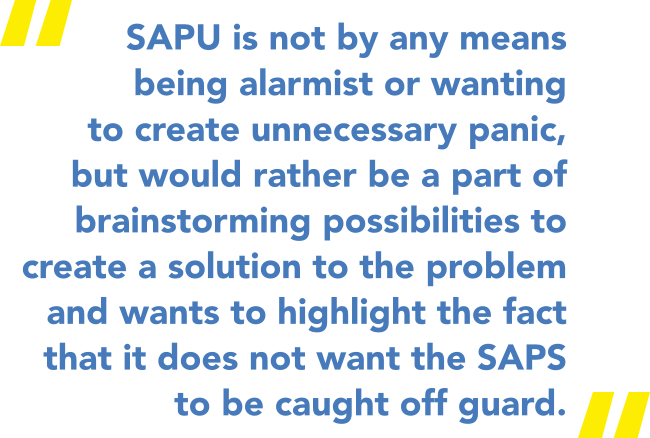
Desperate times calls for desperate measures and the current COVID-19 pandemic is a crisis like nothing else that we had to overcome in the past. SAPU will also table this proposal at the police bargaining council of the SSSBC due to its great importance. SAPU would also like to use this opportunity to commend and thank every police reservist who continues to render their services for the benefit of the SAPS. We salute you!

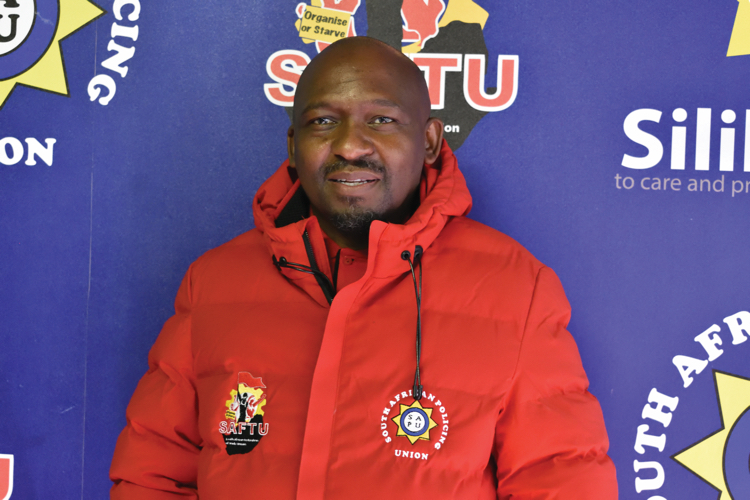


The South African Policing Union (SAPU) has noted the crime statistics released by Police Minister Bheki Cele as major cause for concern to both law–abiding citizens and police officers. The fact that there were 21 325 murders in South Africa between 1 April 2019 and 31 March 2020, an increase of 303 murders more than the previous year, is a clear indication that South Africa is like in a war zone. The 1,4% increase should make all law-abiding citizens have sleepless nights because this shows that the criminals have taken over the streets of our country.
We have also noted the alarming rate of 73 police officers killed during this same period. Of these, 38 were brutally killed whilst off duty. The killing of police officers in South Africa has been a major cause for concern all these democratic years as police officers are being killed at an alarming high rate. The 10-point plan of the then Police Minister Nathi Mthethwa has never yielded any desired results. Every year the country is shown high numbers of police officers who are brutally killed.
The increase of 0,7 % in contact crime during this period signifies the serious crime situation that the country is faced with. SAPU is calling for tough legislation to curb serious and violent crimes in our country. Ordinary citizens must be asking themselves how safe they are when the police who are constitutionally mandated to ensure their safety are the ones who are victims of crime. Hundreds of police officers like the general public are of the view that the criminal justice system is soft on criminals. There are many well-documented cases where suspects are held and given free passes through low and sometimes free bail. This is letting us down. Police officers work day and night to bring culprits to book for them to be let free by a criminal justice system that seem to be more friendly towards criminals.
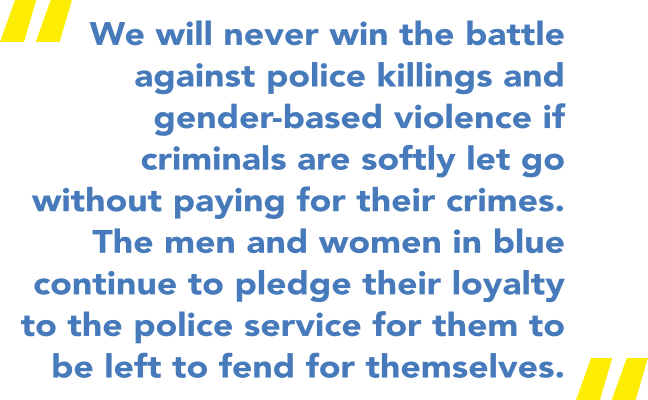
SAPU believes its only lengthy prison terms that can serve as a deterrent to would be criminals that crime does not pay. We are calling for parliament to introduce tough laws to curb violent crime. We will never win the battle against police killings and gender-based violence if criminals are softly let go without paying for their crimes. The men and women in blue continue to pledge their loyalty to the police service for them to be left to fend for themselves. The killing of police officers is a clear declaration of war against the state; however, it is not treated as such. In most matured democracies, the killing of police officers would receive the attention of the president or the head of government.
We are not calling for preferential treatment. The reality is when a police officer is attacked that should be treated as an attack on the state itself and dealt with accordingly as treason. Contact crime in South Africa is completely out of control. Drastic measures must be taken as a matter of extreme urgency.
In conclusion SAPU would like to acknowledge the strategic leadership of National Commissioner Khehla Sithole is providing in the police. We are calling on him to lobby parliament to empower the police through tough legislation for the men and women in blue to fight crime head on.
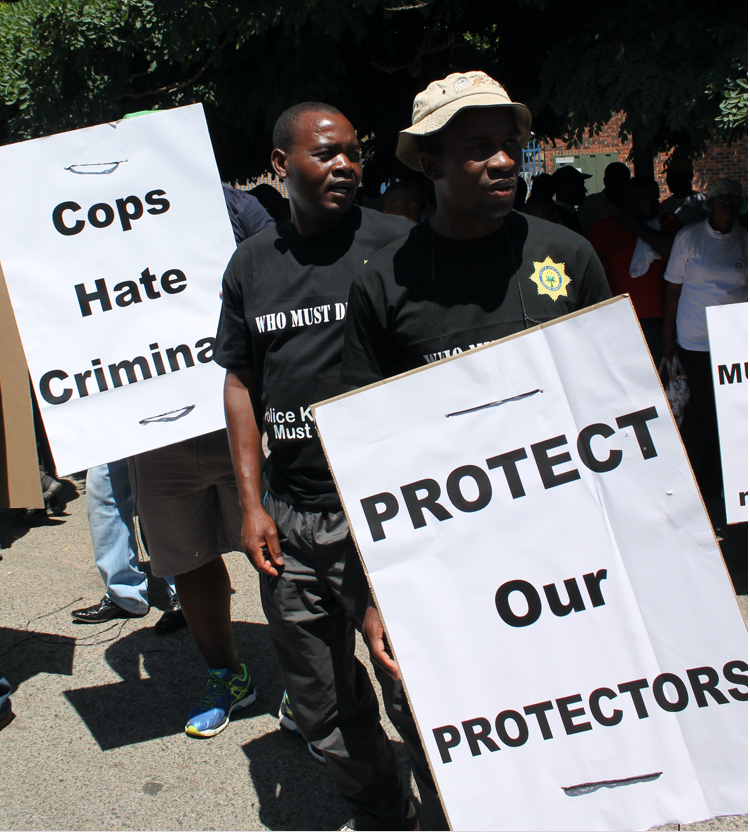

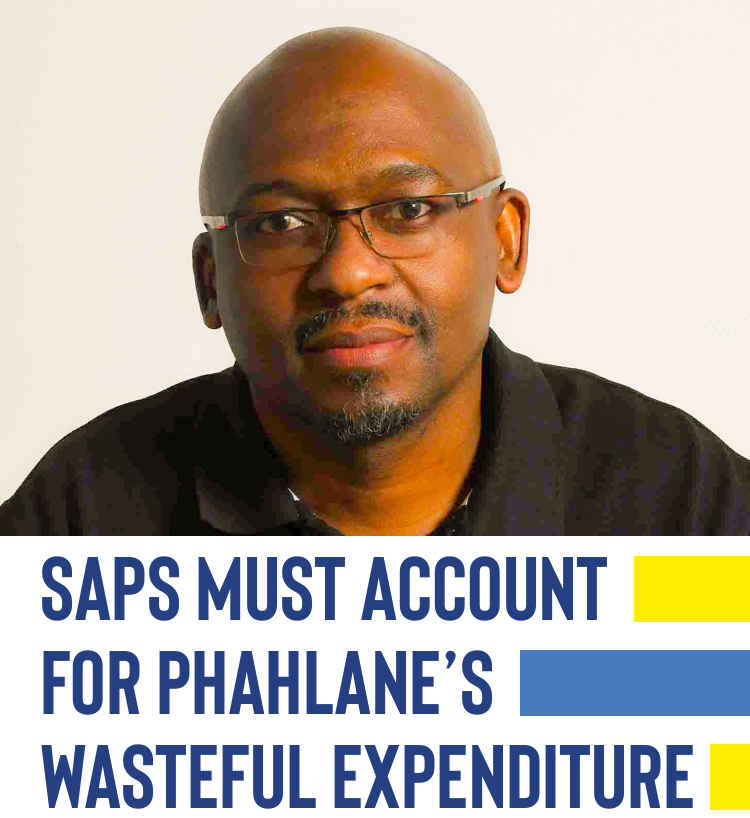
The South African Policing Union (SAPU) has learnt that the fiasco surrounding the former acting National Police Commissioner Lieutenant-General Khomotso Phahlane seem to have finally come to an end. As SAPU has been on record calling on the SAPS management multiple times in the past to clarify the status of General Phahlane while being suspended with full benefits, the SAPS management was quiet over this matter. SAPU is therefore urging the SAPS management to be held accountable over what SAPU believes was a wasteful expenditure for about three years before a final decision was made.
SAPU wants to state it categorically clear that we do not by any means rejoice from his dismissal. SAPU is a proud revolutionary movement that will never enjoy the dismissal of any employee. SAPU’s primary concern is the fact that the status of General Phahlane in the police remained unclear for a very long period of time. He was not on suspension nor was he allowed to work yet he received his full salary with benefits. It is for this reason that SAPU is expecting the SAPS management to publicly account for this clearly wasteful expenditure.
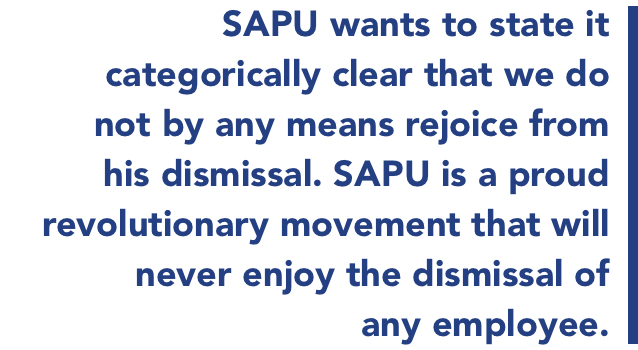
Unfortunately, there are double standards in the SAPS as there are many cases where junior and functionary SAPS employees have been speedily dealt with through an arbitration process and dismissed for petty offences. SAPU is calling for measures to recoup the amount of money that General Phahlane was paid while on special leave. On several occasions we expressed concern that the issue of General Phahlane should not be left unattended for too long. SAPU was also vocal on the lengthy suspension of the then Crime Intelligence Divisional Commissioner Lieutenant General Richard Mdluli and it is regrettable that a similar scenario has repeated itself in the SAPS.


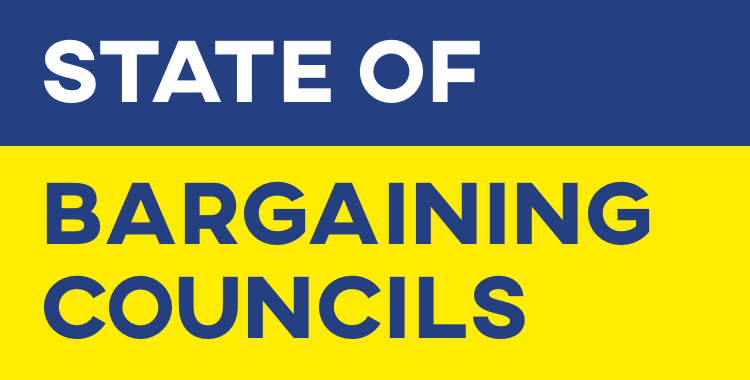
SSSBC AND PSCBC
South African President, Cyril Ramaphosa announced a national lockdown which started on 26 March 2020. This was a strategy to control the spread of the coronavirus, and many institutions and employees were supposed to be on lockdown with the exception of those that provided essential services that included South Africa Police Service (SAPS) members employed in terms of the South African Police Act.
A day before national lockdown on 25 March there was a Safety and Security Sectoral Bargaining Council (SSSBC) special meeting in council which was called by the South African Policing Union (SAPU) to discuss a position paper. The position paper was on SAPU’s demand for a special payment allowance for non-essential service workers in SAPS which are those members employed in terms of the Public Service Act.
The rational was that because they are non-essential, SAPS must therefore compensate them for coming to work while other non-essential employees were on lockdown. The employer, SAPS, indeed acceded to the demands and the matter was finalised on noting that they will be paid a COVID-19 allowance of R400.
During the meeting SAPU raised its ‘point clearly that the SSSBC meetings and activities as a council in dealing with matters for members who are frontline workers in the fight against the COVID 19 pandemic must continue during the lockdown period. The only matters that were excluded from continuation were the face-to-face cases and members walk-ins to the SSSBC buildings. The cases were subjected to a temporary halt in terms of setting out dates, but referrals were accepted through electronic means.
SAPU also mentioned that should there be anything with regard to employment conditions of members that required binding decision, council must converge to deal with such either through a virtual meeting or use of any venue that allows precautionary social distance.
This was to ensure that the members who are highly exposed to COVID 19 do not feel neglected in case they faced challenges which required council decision making. The employer agreed with the SAPU submission during the meeting and that became a decision of the council. To date the SSSBC activities are ongoing and some matters have been dealt with in council.
Security guards
SAPS employed security guards who were posted to be guards in police stations, hospital, and various SAPS buildings. These members approached SAPU for assistance due to dissatisfaction they had with their conditions of employment. SAPU then took the matter and started communicating with the employer with the aim of reaching a resolution. However, this did not yield any acceptable results and the members mandate was that SAPU must take relevant legal steps to ensure that their dispute is resolved. SAPU approached the matter in a two-fold processes. During the SSSBC special council on 12 August, SAPS said they will consider employing these members to fill in the 3000 posts reserved for active reservists.
i. Matter set for negotiation as agenda at SSSBC
The matter was tabled at SSSBC in the form of a position paper. There is also a draft proposal on how translation must be effected, that SAPU provided to the employer. The matter is still in the council’s agenda for negotiation.
ii. A dispute on the matter was declared at the SSSBC
A dispute was declared on the matter and it went through conciliation. There was no consensus at conciliation and the matter was then set for arbitration. Due to COVID-19 lockdown, SSSBC case scheduling was suspended pending easing of regulations. SAPU believes that these members deserve justice which is to be translated as into South African Police Act.
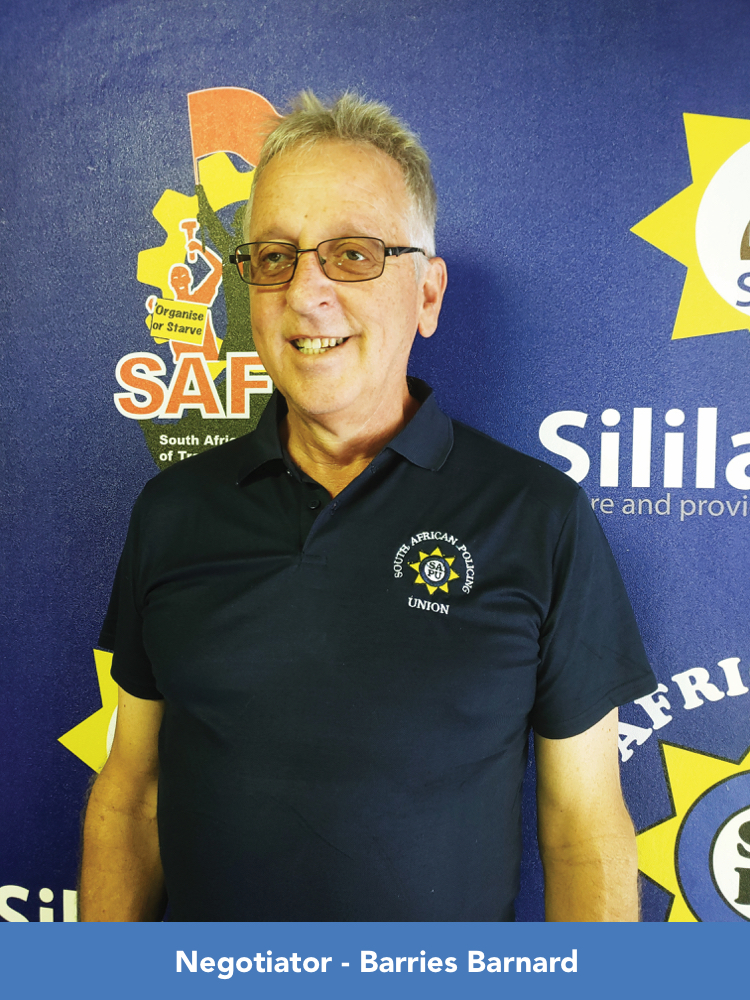
10111 Translation
SAPU fought for 10 111 operators to be translated from Public Service Act to South African Policing Act and thereby also be recognised as essential service. This was eventually realised in the collective agreement being SSSBC Agreement 1 of 2019 when it was signed to this effect. However, there are some members who were not translated for not meeting the requirements of being employed in terms of the Police Act such as having visible irreconcilable tattoos. SAPU is currently in discussion with the employer to try accommodating these members.
Translation of Public Service Act members to South African Police Act
SAPU would like to reiterate that the COVID-19 pandemic and the Disaster Management Act Regulations have proven that Public Service Act employees are essential in SAPS.
This is evident due to some of the following reasons:
i. When COVID-19 lockdown started SAPS wanted some members to be at work and even offered to pay them special service allowances because they said they are critical for operations. These included those in finance, and cleaners.
ii. SAPS say their support is of critical assistance to the department and this clearly proves that SAPS cannot function without Public Service Act members.
SAPU has now tabled a position paper at SSSBC demanding translation of all Public Service Act members to the Police Act.
Reenlistment of formers SAPS members, employment of reservists and external applicants (youth) to complement decrease of police officers due to COVID-19
As a result of the extraordinary circumstances South Africa finds itself in with the outbreak of Covid-19, all training, and gatherings of more than 50 people are prohibited under the Disaster Management Act regulations. This resulted in a gap in which many of the SAPS Act members were significantly reduced and not replaced because of the restrictions.
In order to fill the void that is left by the inability to train new entry level members SAPS must embark on an urgent programme to re-enlist former trained members of all ranks who left the service in good standing so that they can be immediately deployed to fill the void in order to maintain service delivery. SAPU calls on SAPS management to re-enlist an equal number of former trained SAPS members. SAPU also demanded employment of reservists as an alternative to mitigate the decreasing number of police officers due to the COVID-19 pandemic.
The Minister of Police, General Bheki Cele in his budget speech for SAPS, supported SAPU’s call when he pointed out the ministry’s commitment to fill posts in terms of the following categories:
• Intake 1: 3 000 active Reservists in October 2020.
• Intake 2: 4000 external applicants from the community at large (mostly youth).
This will assist in ensuring that challenges faced by SAPS due to COVID-19 that result in shortage of police officers due to quarantine and closure of stations gets mitigated. SAPU will continue to be the vanguard of better working conditions for workers and any development will be communicated as soon as possible.
During the SSSBC special council on 12 August 2020, SAPS made a presentation of how training will unfold for the year 2020/2021.
Labour suggested that there must be a meeting where labour will ask questions of clarity. Employer also agreed to labour’s suggestion.
PSCBC
Resolution 1 0F 2018
The Public Service Coordinating Bargaining Council (PSCBC) has also been ongoing virtually ever since the beginning of COVID-19. The last leg of PSCBC Resolution 1 of 2018 (Salary increase) was not implemented for this year 2019/2020 financial year. During March and April, SAPU together with other unions went into conciliation with the employer demanding implementation of the agreement. However, that did not yield any good results because the employer did not want to honour the agreement. SAPU, with mandate given by members, then took the matter to court and will give update as soon as the Labour Court issues out a date.
Management of period to utilize 2019 Annual Leave: Resolution 1 OF 2020
The unintended consequences of the COVID-19 pandemic are the definite challenges on the leave provisions of the employees. SAPU together with other labour parties submitted that the capped leave days which normally members forfeit when not utilised at the end of leave cycle (end of June) must make provision for extension in a way that members will not forfeit their unused leave days. The calling of this position was necessitated by the fact that did not go on leave because of changed working arrangements propelled by COVID-19.
A PSCBC Resolution 1 of 2020 was signed to regulate this unintended situation regarding employees end of leave cycle. According to the agreement, clause 7.1 (d) of PSCBC Resolution 5 of 2001 be adjusted for the 2019 leave cycle and read as the following: “The remaining leave days of unused leave for the year 2019 annual cycle shall be utilised within a 24-month period. The 24-month period will end 31 December 2020. All remaining unused leave days for the year 2019 annual leave cycle shall fall away thereafter. However, where leave due is not taken due to employer’s service delivery requirements, such leave shall be paid at the end of a 24-month period”.
COVID-19 Task Team
There is also a task team of COVID-19 formed in council which is tasked with information gathering and offering proposals and or alternative measures to council on how to resolve COVID-19 challenges. The task team consists of members from both the employer and labour parties. A meeting took place on the 13th of August 2020.
SSSBC Agenda
Issue Brought by Labour

9.1 Release of FTSS (labour to submit draft agreement) – up to salary level 12.
9.9 Promotion of FTSS (labour to draft agreement).
9.2 Procedural Agreement (labour to draft agreement) – election to shop stewards up to salary level 12 and release of the Provincial Office Bearers.
9.4 Review Service Allowance – how much increase (labour to draft agreement) – R1500.
9.6 Translation of posts: IAC Analysts Crime Intelligence (labour to draft agreement) – entry level Warrant Officer.
9.10 Operationalization of serialized membership and cancellation forms – how do we get rid of this point from agenda?
12.6 Review of SSSBC Agreement 3/2017 (establishment of lower bargaining structures).
9.11 Employment of Hospital Guards as Security Guards (employment of Hospital Guards as Police Officials) – draft was tabled.
9.15 Aleo’s Ruling (draft was tabled).
• Regarding of PSA Act lower levels – and movement of those that did not benefit from the April 2020 regrading to get a notch higher.
• Lack of uniform for SAPS members and carry-over of clothing credit.
• AGM 2020/2021 financial year 28/08/2020.
Issues Brought by Labour
7.1.3 Challenges on SSSBC Agreement 3/2018 (implementation).
9.12 Regrading of K9, Armourers and Explosives Units (addendum to the agreement).
9.8 Upgrading: Close and Static Protectors: Divisions: Protection and Security Services (PSS).
9.3 Demand for grade progression of PSA Act members on Salary levels 6 and 8 (PSCBC Resolution 3/2009) (level 6 = 2264 and level 8 = 211).
8.2 Monthly contribution by all SAPS members towards SAPS Education Trust (employer to submit draft agreement).
11.3 Funding model: Education Trust (employer to respond to questions posed by labour).
9.5 Establishment of Anti-Gang Units (Employer to come with a work study presentation on the establishment of anti-gang units across the country on the formalization of the unit).
9.14 EHW Support Structure and Policy (provide number of vacant funded posts for psychologists) – Employer to respond.
9.16 Reinstatement: Dismissed members (reimbursement of all benefits i.e. GEPF, Polmed, Union subscriptions etc.) – Employer to respond.
11.9 Use of Non – state owned vehicles by protectors (members to be indemnified and protected by employer) – Employer to respond.
9.17 Restructuring (Employer to consult on its entire restructuring).
10. Agreement 2/2011
10.1 National Instruction: Promotion Policy (Employer to implement)
10.2 Compensation Model/Salary Structure
10.3 PSA Act incorporation (Employer to implement) – Section 29 of the SAPS Act 1995 as amended (39032 members)
11.4 Minimum Service agreement (Employer to draft agreement that was submitted by labour)
11.5 Deviations: SSSBC Agreement 1/2006 (Repealed Agreement on SAPS Discipline Regulations) – Employer to give response.
Issues for Both Parties
12.1 SSSBC Strategic Plan
12.2 RBO
12.4 SSSBC Indaba
12.3 Amendments: SSSBC Constitution
9.13 Finance Committee – SAPS budget
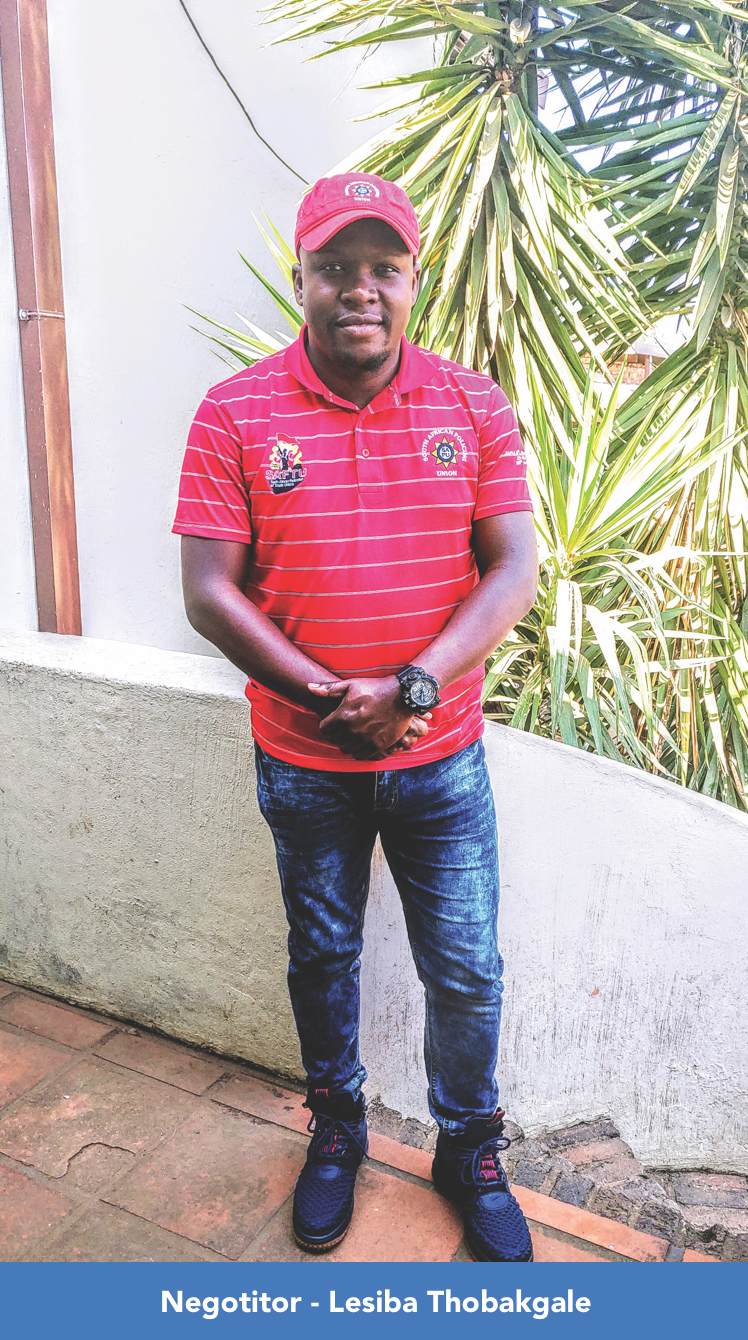


The purpose of the Labour Law Newsletter is to highlight developments in labour law and labour relations in order to provide practical advice to all SAPU functionaries operating within the policing cluster. Collective as well as individual labour law matters will be addressed, including labour relations matters. Legislation that impacts on the workplace will also be put under the spotlight. A further aim of the newsletter is to be interactive in the sense that SAPU functionaries can also submit inputs on issues that they have encountered in the workplace, which can then be shared amongst all.
Questions and requests for legal advice can also be submitted. A response will be send to the requester but also shared in the next newsletter for general consumption in order to share best practices. Functionaries involved in arbitrations are also invited to share arbitration rulings for discussion in the newsletter.
Individual Labour Law
Suspension of a disciplinary sanction
One of the matters that SAPU is currently addressing with SAPS is the implementation of the sanction of suspension without salary for between one and two months as provided for in regulation 12(1)(d) of the SAPS Discipline Regulations, 2016. This sanction, although harsh, is an alternative to a dismissal being imposed on an employee and do find application in instances where an employee is found guilty of serious misconduct. The sanction is supposed to only affect the salary of an employee and not the benefits portion of the remuneration package. In practice, this is however not the case as SAPS is suspending the salary and benefits of an employee under these circumstances.
This has grave consequences for employees as it impacts on the medical, pension and housing benefits for the period under suspension. As a responsible and caring trade union we have addressed this issue with SAPS management on behalf of an individual member whose Polmed benefits have been terminated during the period of suspension. Not only did SAPS immediately re-activate his Polmed membership, but they also undertook to refund the medical expenses which the member incurred whilst not covered by Polmed. The suspension of pension benefits has long term consequences for employees, and therefore SAPU is engaging SAPS management on this issue in order to resolve it in the best interest of all affected employees.
If there are past similar incidents that are known, they can be reported to SAPU LEGAL for assistance.
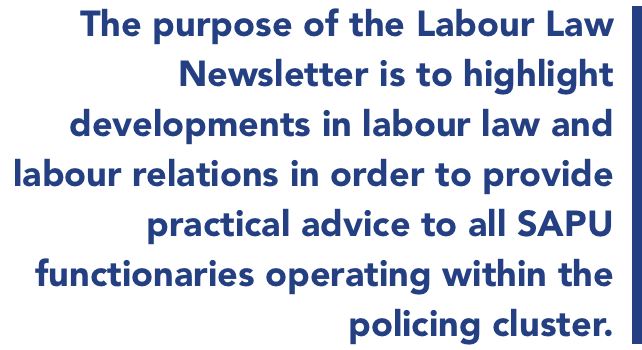
Application For Reinstatement: Section 36 of the SAPS Act
Section 36(1) of the South African Police Service Act, 1995, regulates the discharge of a member who is convicted of an offence and is sentenced to a term of imprisonment without the option of a fine. In such an instance the member is deemed to have been discharged with effect from the date after the sentence (the following day). Such a dismissal is ex lege (by operation of law) and cannot be challenged through the normal unfair dismissal dispute procedure of the SSSBC as the dismissal did not involve a decision taken by the employer to dismiss an employee (no discretion was involved as it took place automatically).
The constitutionality of Section 36 came under scrutiny in the matter of Khongoana v Minister of Police (North Gauteng High Court case 45970/13) delivered on 11 November 2014. In the said matter a former member who was discharged in terms of section 36(1) applied for reinstatement after his release on parole. His application was turned down, after which the former member challenged the constitutionality of Section 36(1) on the basis that the section does not provide for a hearing to members that have been dismissed pursuant to section 36(1) and this offends the right to dignity, fair labour practice and fair administrative action enshrined in the Constitution, and is also inconsistent with the common law principle of audi alteram partem. The court went on to accept that section 36(1) constitutes a limitation to a member’s fundamental right to fair labour practices enshrined in Section 23 of the Constitution, but that such limitation is reasonable and justifiable in an open and democratic society and therefore section 36(1) passes constitutional muster. In its reasoning to come to this conclusion the court made the following important statements in relation to the role and duty of a police officer: “Under section 205(3) of the Constitution as well as the preamble to the Act, policemen are vested with statutory and constitutional duties of immense societal importance. The SAPS has a constitutional obligation to prevent, combat and investigate crime...and to uphold and enforce the law.”

“In order to achieve this constitutional mandate the SAPS relies fully on the conduct of each individual member. By becoming a member of the SAPS, one is vested not only with authority to uphold the law but also with the public’s confidence and trust that each member will uphold the law.”
“There is accordingly a high level of trust placed on each member both by the SAPS and the public. A breach of that trust not only destroys the confidence of the SAPS in that member, but it also destroys public confidence in the SAPS in general.”
If a member appeals such a conviction and the conviction is set aside and not replaced by a conviction for another offence, the member may, within a period of 30 days after the conviction has been set aside, apply to the National Commissioner to be reinstated as a member and in terms of section 36(3) the National Commissioner shall reinstate such person as a member with effect from the date upon which the member is deemed to have been discharged.
The National Commissioner thus has no discretion not to reinstate the former member. The challenge however is that quite often the application for reinstatement is made outside the 30-day period, either because the member and/or his/her legal representative were not aware of the appeal finding or in certain instances the application is submitted late by the former member’s representative. The view of SAPS has always been that an application that is made outside the 30-day period is not entertained as the Act does not provide for condonation and hence a decision to reinstate cannot be made under these circumstances.
This was also the case in the matter of a certain Captain Phopo who was dismissed from SAPS in terms of Section 36(1) after his conviction on a charge of indecent assault and sentence to eight years’ imprisonment. The former member appealed against the conviction and sentence and the appeal was subsequently upheld by the Grahamstown High Court. Based on the above, the former member submitted an application for reinstatement, albeit 55 days after the judgment was handed down. The SAPS informed him that his application for reinstatement was declined, inter alia because it was launched outside the 30-day period. The former member then launched a review application in the Labour Court, requesting the court to set aside the decision not to reinstate him. (Labour Court, Port Elizabeth case P275/16).
In his application the former member made it visible that he was not aware of the judgment when it was handed down and once he became aware of it, his application was submitted within seven days thereof. The critical question before the court centred around the question whether the 30-day period under the provisions of Section 36(2) of the SAPS Act is condonable.
The court stated that legislation must be interpreted textually, contextually and purposively and in an instance where there is a dispute in respect of the interpretation of a specific section, the courts are obliged to prefer interpretations of legislation that falls within constitutional bounds over those that do not, provided that such interpretation can be reasonably ascribed to the section. In an instance where more than one meaning is reasonably plausible, the one resulting in constitutional compliance must be chosen.
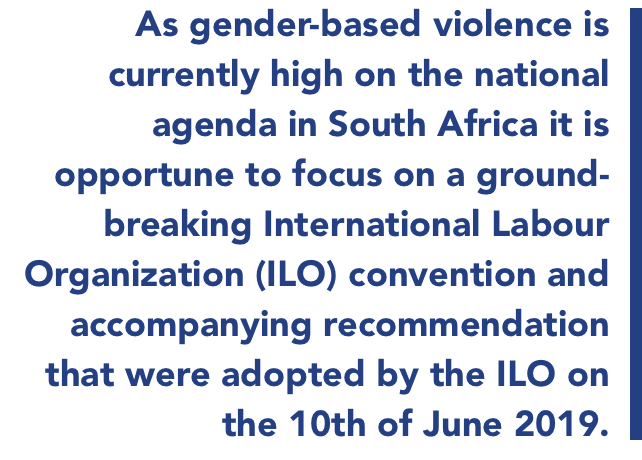
The court went on to state that recently there has been a shift in the traditional approach of interpretation in that mandatory requirements will not be held to require exact compliance where substantial compliance will achieve all the relevant objects. Applied to the facts on the matter before the court, the question that needs to be answered is whether the decision of the National Commissioner to deny a reinstatement on the basis that the application has been made outside the 30-day period, is reviewable.
Turning to the merits of the matter, the court pronounced that the argument of SAPS that the non-compliance with the provisions of Section 36(2)(c) of the SAPS Act is not condonable and is not in concert with the promotion of the spirit, purport and objects of the Bill of Rights, and in particular, the applicant’s right to fair administrative action. Although the applicant’s application for reinstatement was out of time, the court accepted that the application was substantially compliant for the purposes of achieving the objectives of Section 36(2) of the SAPS Act and therefore the decision of the National Commissioner was reviewed and set aside and remitted back to SAPS for reconsideration.
This judgment is authority for an argument to be made out that the application for reinstatement, albeit outside the 30-day period, must be considered by the National Commissioner, failing which, such decision can be reviewed by the Labour Court.
International Developments
As gender-based violence is currently high on the national agenda in South Africa it is opportune to focus on a ground-breaking International Labour Organization (ILO) convention and accompanying recommendation that were adopted by the ILO on the 10th of June 2019. The Violence and Harassment Convention ,2019 (No.190) as well as the Violence and Harassment Recommendation,2019 (No.206) are two international labour standards that for the first time cover violence and harassment in the world of work. Although the instruments were adopted at the conference, individual member states (including South Africa) must still ratify the Convention. President Ramaphosa recently indicated that the South African government is gearing towards the ratification of the Convention. Notwithstanding the fact that government must still formally ratify the Convention, the Department of Employment and Labour already called upon employers to ensure that their policies are in line with the Convention.
As a progressive union SAPU will soon engage with SAPS management in order to re-visit SSSBC Agreement 1/2011: Agreement on Sexual Harassment in the Workplace in order to align it with the principles enunciated in the adopted Convention. The said Convention provides a clear framework to shape a future of work based on dignity and respect and free from violence and harassment. The preamble to the Convention states that the following principles are recognised:
- The right of everyone to a world of work free from violence and harassment, including gender-based violence and harassment.
- Violence and harassment in the world of work can constitute a human rights violation or abuse, and that violence and harassment is a threat to equal opportunities, is unacceptable and incompatible with decent work.
SAPU is committed to protect its members from any form of violence and harassment in the workplace.



SAPU achieved a major victory for one of our employees who was sanctioned to a suspension without salary for one month after having been found guilty in a disciplinary hearing. The finding and sanction will be challenged on arbitration but as an immediate recourse SAPU intervened when SAPS not only suspended the members salary (as provided for in the Disciplinary Regulations) but also suspended the members Polmed benefits and pension contribution, which is part of the benefits portion of remuneration and not salary. After placing SAPS on terms, the Polmed membership was reinstated and SAPS also undertook to refund the medical expenses that the member incurred for the period he was not covered. The suspension of the pension benefits of the member for one month also has a dire impact on his pension benefits and SAPU is currently also engaging with SAPS to rectify this.
The practice not only to suspend the salary as a sanction but also the other benefits of a member has been ongoing since the inception of the SAPS Discipline Regulations of 2016 and might have negatively affected some of our members. In order to rectify past injustices members are free to contact us to assist them in this regard. Details of affected members can be e-mailed to SAPU Legal at: divodendaal@sapudefence.co.za.

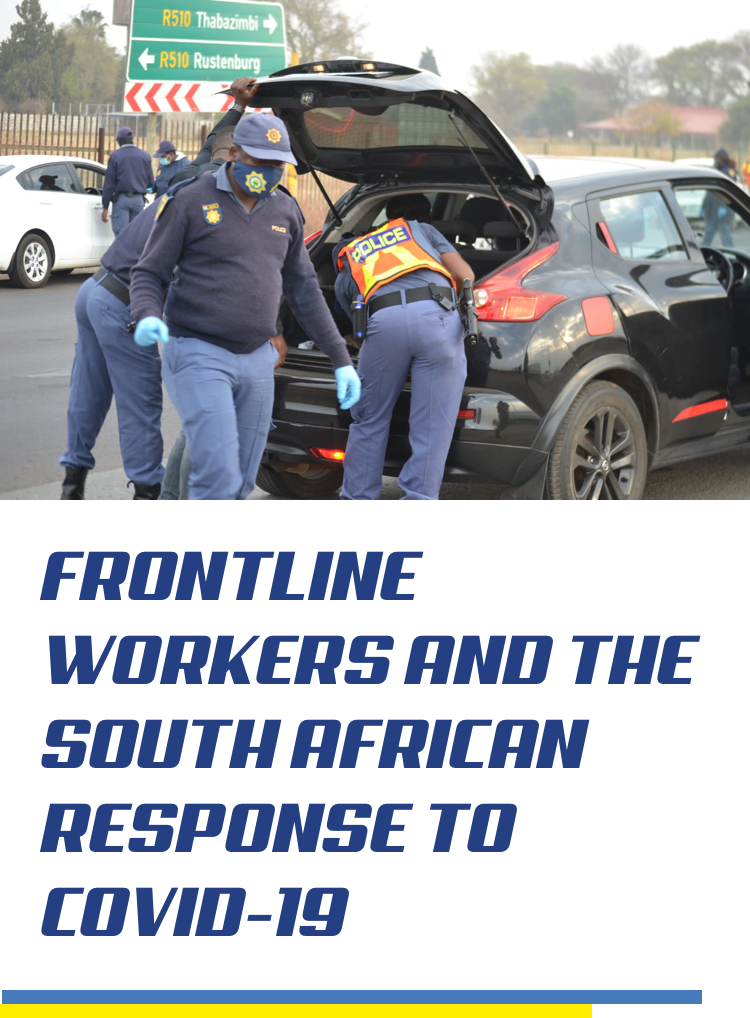
The South African Poling Union (SAPU) is saluting the Covid-19 frontline workers for their dedication often at the risk of dying from the deadly and highly contagious disease. Several frontline workers especially doctors, nurses and medical care workers, the police, traffic officers, correctional services officers, and others, have succumbed to illnesses caused by Covid-19 -- paying the ultimate sacrifice with their own lives.
The South African Police Service (SAPS) and the South African National Defence Forces have carried out several joint operations including Operation Notlela as part of national efforts to control the spread of the coronavirus. According to the Department of Health as of 5 September 3, 783, 823 coronavirus tests had been conducted of which 636 884 were positive. The recoveries were 561, 204 while 14, 779 people died. New cases were 1806. In Africa, over 1.2 million cases have been reported, with one million recoveries and 30, 000 deaths as reported by the World Health Organization.
The department is also using new technology in the fight against the coronavirus. A Covid-19 Alert App can be downloaded from website: www.sacoronavirus.co.za. This app notifies you on the smartphone if you have been exposed to Covid-19, but this can only work if you are in contact with people who have downloaded the app hence the campaign for people to install the app on their phones. However, the main message from the department is that to avoid infection people must exercise personal hygiene such as thorough handwashing with soap (for at least 20 seconds) or hand sanitizing with alcohol-based sanitizers, proper wearing of cloth face masks (to protect yourself and others from infection), and exercising social distancing of at least two metres. There is also advice for those with other diseases such as diabetes, and hypertension to exercise extra caution. Age is also another factor especially for senior citizens above 60 years of age.
The department of health advises that when you get symptoms such as mild to severe respiratory illness with cough and shortness of breath you must visit a doctor or go to the clinic. Although other people can be asymptomatic, they can still pass on the coronavirus to others.
The regulations on how to control the Covid-19 pandemic are issued under the Disaster Management Act (2002) which came into force at the end of March when South Africa reported its first Covid-19 case of a 38-year-old male who had travelled to Italy with 10 others. A few days after returning to the country, the man became sick with fever, headache, sore throat, coughing and was generally unwell. Since then the country has moved from level 5 to the current level 1.
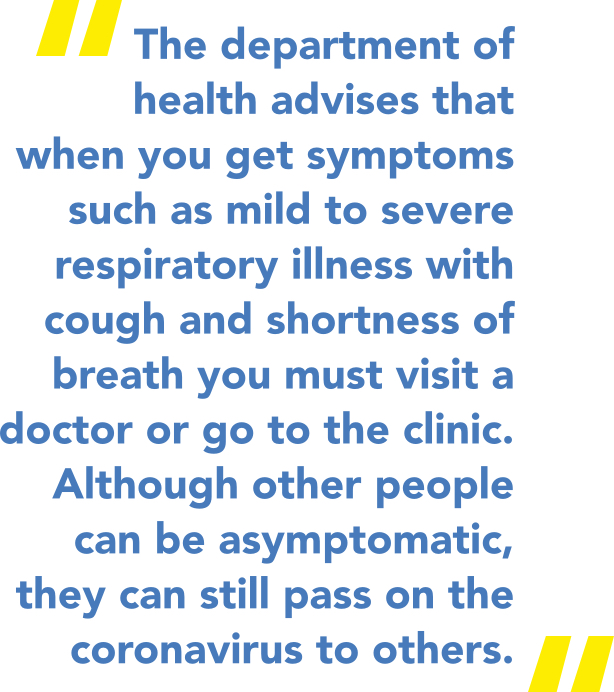
Coronavirus 2 (SARS-COV-2) -- the virus that cause Covid-19 -- as a zoonotic virus meaning that the virus jumped from animals to human beings. This could have occurred it China because the coronavirus could be traced back to the Huanan Seafood Wholesale Market in Wuhan. This wet market, where live animals are sold could have allowed for the virus to jump to humans.
The WHO says many countries are busy testing medicines that can be used as a vaccine against Covid-19, but vaccine development takes time. In some instances, for up to two years. In the meantime, the only way to prevent the spread is through washing hands, wearing masks, and social distancing.
Comment on South Africa’s response to the Covid-19 pandemic, Minister of Health, Dr. Zweli Mkhize said: “The national lockdown and the risk adjusted strategy of easing restrictions has contributed to limit the spread of the coronavirus and helped us buy time to build capacities for case management.”
“We have to anticipate that covid-19 will stay with us for some time. We need to balance public health action of serving lives ensuring people’s livelihoods return to some semblance of normal – the new normal.”
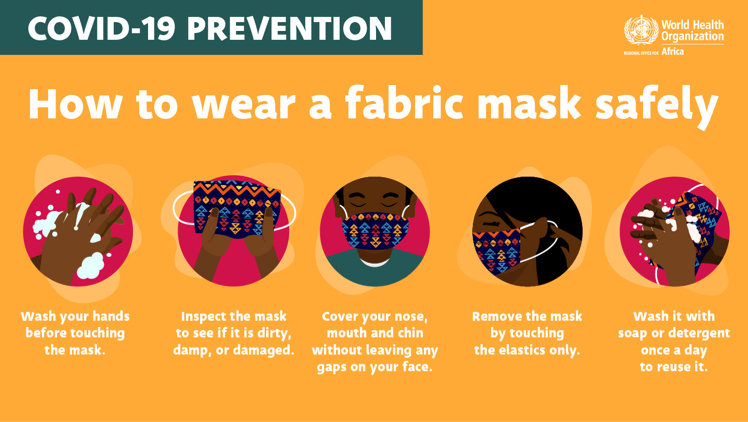

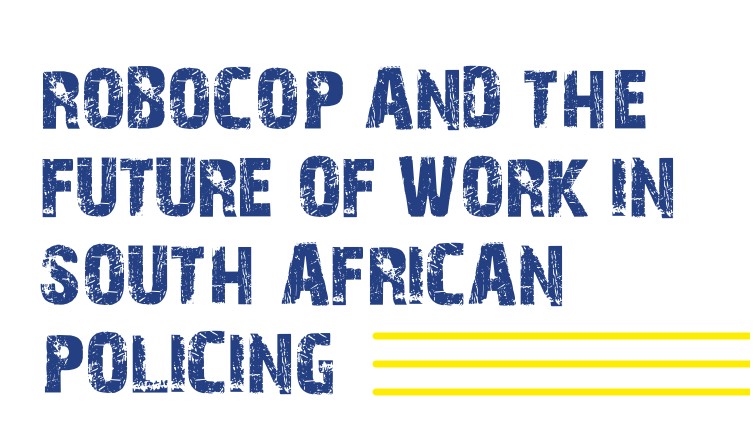
As the South African Policing Union (SAPU) we are always watching the developments that are taking place under the banner of the 4th Industrial Revolution (4IR) because that is where the future lies.
With 4IR upon us, does this mean that we will soon start seeing robots involved in policing in South Africa? This is not far-fetched as the world is moving to automation, big data and artificial intelligence which are the main components of the 4IR. We already have self-driving cars and autonomous drones that can deliver goods, but what about a South African Police Service RoboCop patrolling the streets of our country?
In Africa, countries like Rwanda are already using robots and drones to promote social distancing. The robots use speech recognition technology and can screen for body temperature, capture data, and detect if one is not wearing a mask. They can also deliver food and medicine. In Asia, Singapore is using robots for Covid-19 enforcement patrols. This means to some extent robots are already involved in some aspects of policing and other services such as public health.
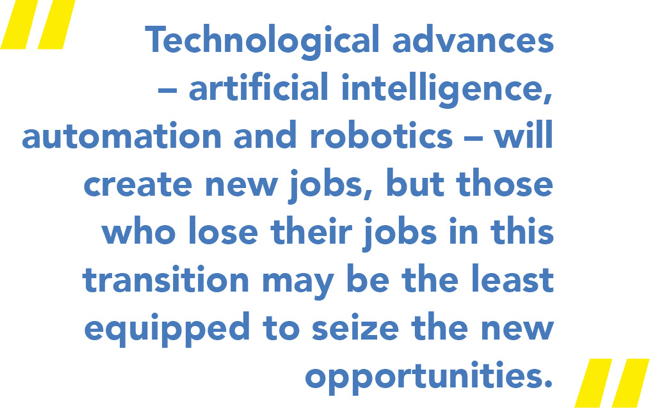
Some of the police vehicles that we see on the roads doing patrols are being manufactured by robots.
However, RoboCop’s body suit as seen in the popular science fiction movies might require more battery power than is currently available. Just imagine what amount of power will be needed to make a robot the size of Robocop operational. If you look at smartphone batteries, for instance, you will find out that most can only last a few hours before requiring a charge. It is the same issue with electric cars currently on the market in South Africa which can only cover a range of 384 km. If Robocop is going to be recharged at charge stations like electric cars one can imagine what will happen when there are Eskom power failures. Hopefully, battery technology will improve to meet the needs of such complex robots that will have brain power and nervous systems.
Scientists say some tweaking might be necessary in the artificial intelligence, but it looks like it is a matter – maybe a century – before RoboCop.
SAPU supports the initiatives by the government in promoting 4IR and various related initiatives. For example, the South African government has set up the 4IR commission. The terms of reference deal with the rapid technological changes and sets out the work that the commission will carry out. “The advent of the Fourth Industrial Revolution has necessitated that countries develop new policies, strategies and innovation plans to enable an inclusive whole of society approach with Government playing a leading responsibility. South Africa currently has different elements of the 4IR spread across Government, the private sector and civil society but there is no current single plan or blue print which brings together the key role players into a single focus.”
At international level President Cyril Ramaphosa is one of the co-chairs of the Global Commission on the future of work. The other co-chair is Stefan Lofven, who is the Prime Minister of Sweden. The commission, which was set up by the International Labour Organization recommends a human-centred social contract that supports life-long learning, people going through transitions, promotes gender equality and strengthens social protection. Further, it argues that technology should be used to promote decent work.
Work for a bright future by the Global Commission on the future of work reads: “Technological advances – artificial intelligence, automation and robotics – will create new jobs, but those who lose their jobs in this transition may be the least equipped to seize the new opportunities. Today’s skills will not match the jobs of tomorrow and newly acquired skills may quickly become obsolete. The greening of our economies will create millions of jobs as we adopt sustainable practices and clean technologies, but other jobs will disappear as countries scale back their carbon- and resource-intensive industries. Changes in demographics are no less significant. Expanding youth populations in some parts of the world and ageing populations in others may place pressure on labour markets and social security systems, yet in these shifts lie new possibilities to afford care and inclusive, active societies.”
The future of work will be one of technological advancement, and with the outbreak of the Covid-19 pandemic the approach to public health is also going to change. As SAPU, we embrace technology which has not remained constant but is always changing, and therefore see the 4IR as the future. Even with 4IR we will continue with our role of fighting for workers rights and decent working conditions.
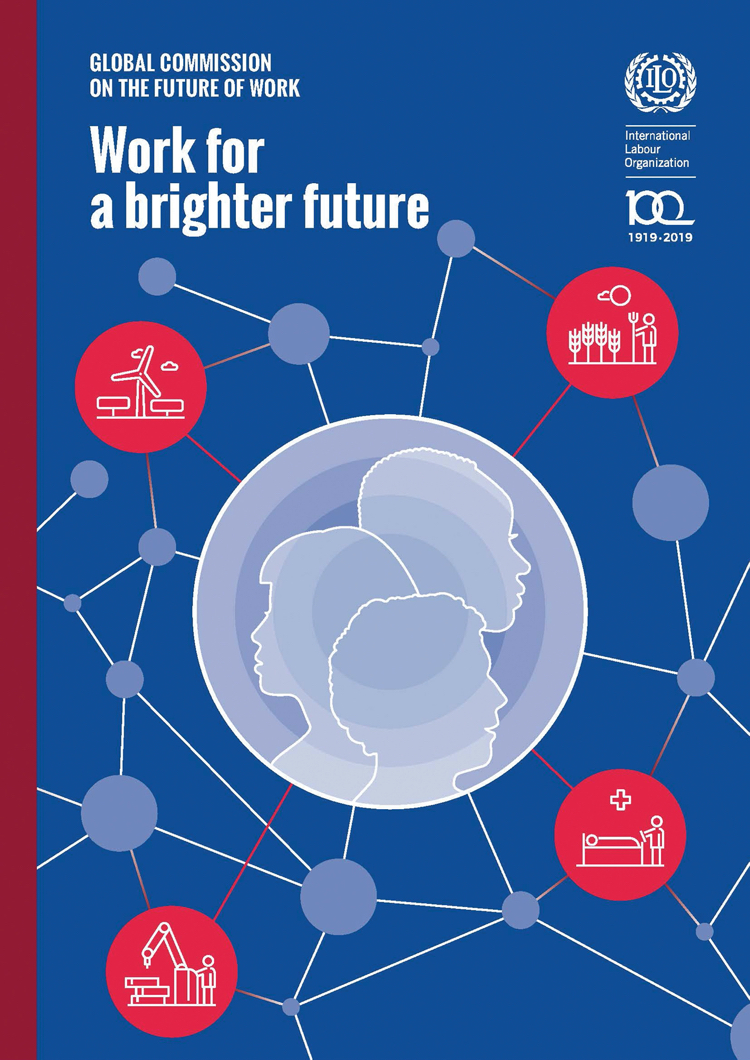

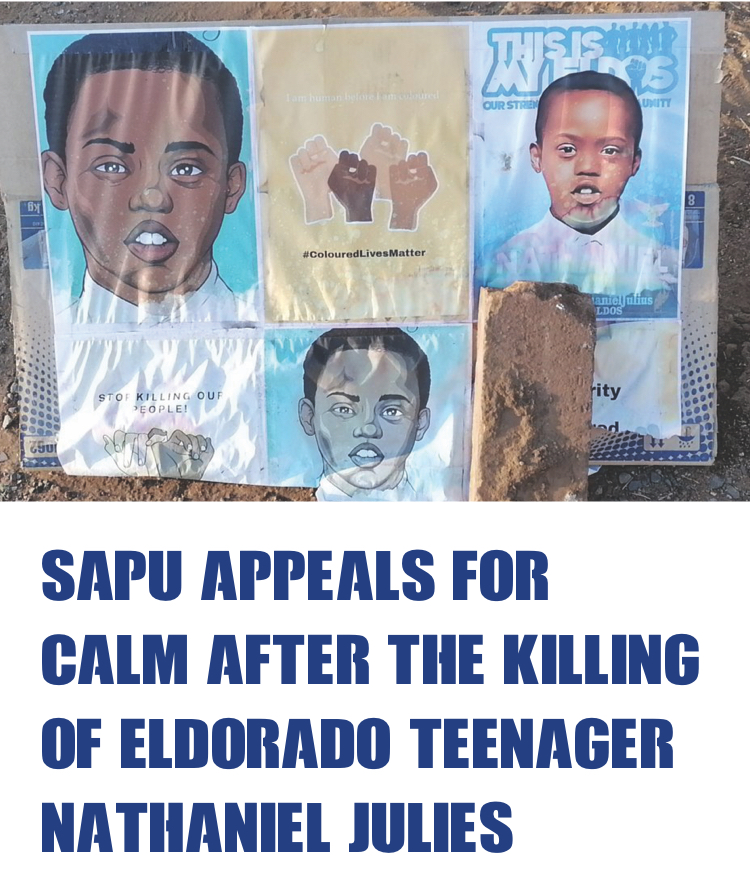
The South African Policing Union (SAPU) would like to call upon law abiding citizens in Eldorado Park in Johannesburg and in the country to remain calm and let the law take its course without any fear, favour or prejudice following the tragic death of 16 -year old Nathaniel Julies.
The unfortunate incident has brought shame to the good image of the institution of the police. We want to add our voice to the condemnation of any form of police brutality against civilians. We have always called for the men and women in blue to perform their duties within the parameters of the law and the spirit of human rights. This unfortunate incident comes after the country just commemorated the Marikana shootings of 2012 -- another sad episode in the history of our democratic dispensation.
SAPU would like to condemn with the strongest terms possible the alleged acts of brutality by the police. Such acts do not represent the majority of police officers who are men and women of great integrity. Most police officers respect the rights of citizens including suspects for that matter. In appealing for calm, we would like to call upon the public not to allow isolated incidents like these to spoil the working relationship and understanding between the police and the society we serve. Let us not allow our long-standing relationship to be undermined by unfortunate incidents like these.
As a democratic state that subscribes to the rule of law that presumes suspects are innocent until proven otherwise, to give the Independent Police Investigative Directorate (IPID) led prosecution a chance to unfold. As things stand, the three police officers arrested over this tragic incident are presumed innocent. We have noticed the reckless views of commentators, opinion makers and even the general public calling in on radio stations expressing their anger and dismay over this incident.
Without being viewed as condoning such incidents, SAPU would like to warn against public sentiments that create a divide between the police and the public. We cannot afford a situation where police are regarded as enemies of the people. As police officers we provide professional policing to our people.

We have also noted the parliamentary debate over what is called farm killings in the country with reservations. We are not by any means taking lightly the plight of farmers and the farming community in general. We are unhappy that there is generally silence when our members are brutally killed. The violent killing of police officers has been alarmingly high since the dawn of democracy. We have never witnessed any attention, let alone, words of condemnation over such incidents. We have consistently called for the re-establishment of specialist police units like the Murder and Robbery Unit to specifically deal with violent crime in our country.
To us any murder whether it is of a police official, a so-called high-profile person or even what is referred to as an unknown person remains murder and needs to be resolved. The preferential treatment of a certain section of our society over others does not subscribe to the principle of equality. Once again, we want to state categorically clear that we condemn the killings of farmers.
We are calling for fairness and equality in the true sense of the word. The crime statistics that were released by the Police Minister Bheki Cele clearly indicate that our country is like it is in a war zone. The high rate of violent crime makes it a matter of extreme urgency that the SAPS re-establish specialist police units. We are calling upon the SAPS management to swallow its pride and acknowledge that the disbandment of effective specialist units like the Murder and Robbery and others was a tactical blunder that is costing the country.

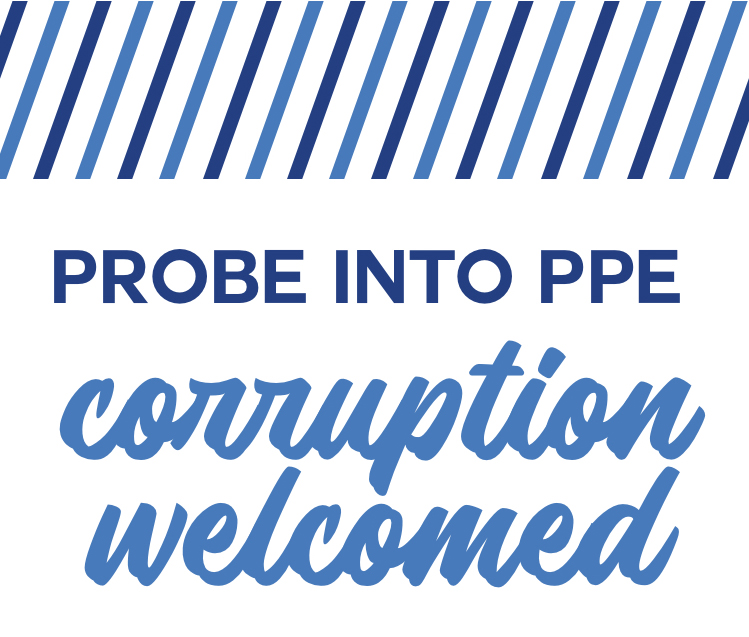
The South African Policing Union (SAPU) welcomes the initiative by the National Police Commissioner General Khehla Sitole to ask the Hawks to investigate the R540m combined worth of police contracts for the supply of personal protective equipment (PPE). It is worth noting that there is no smoke without fire. We are particularly pleased that instead of General Sitole defending and sweeping these allegations under the carpet as is usually the norm with allegations of this kind, he has decided to ask a credible law enforcement agency to get to the bottom of this.
In welcoming this probe, SAPU calls for a speedy investigation that will leave no stone unturned into these allegations. We do not want a situation where the probe takes ages to be concluded. We would also like to witness those found to be wanting to be brought to book. The mere allegations of corruption in the police are an embarrassment. As law enforcers we should not be found to be on the wrong side of the law. It is precisely for that reason that we would like those who have brought shame to the good name of the police to be held accountable. Acts of criminality and corruption by anyone in the police whether it is a top commander or a functionary officer on the ground should not be tolerated but be uprooted without fear or favour. It is a shame that there could be others in the police supply chain management who used the state of disaster that the country is under to fill their own pockets. It is also totally unacceptable that these corrupt elements used this period when our members risk their lives fighting the pandemic out there to enrich themselves. We want the probe to go as far as looking at the quality of the products supplied by the service providers. We have seen instances where other frontline employees were exposed and eventually succumbed to Covid-19 because of the poor quality of the PPE they used.
The abuse of emergency procurement procedures must be dealt with accordingly. If government departments like the Department of Health are subjecting their PPE contracts to public scrutiny and independent probe, it is morally correct for the SAPS to follow suit. We call upon the Hawks to act with speed on this matter. If anyone is found wanting let that individual face the consequences. There is no room for criminality and corruption in the SAPS.
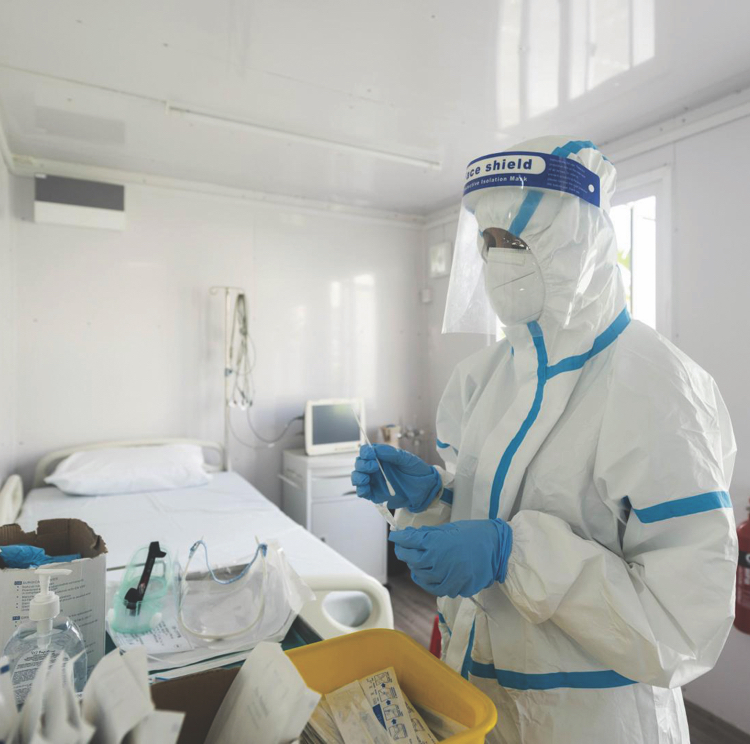


The South African Policing Union has scored another major political victory for police officers after the South African Police Service opened the Pretoria West Police Training College as a quarantine site for the police.
The opening of this quarantine site in early September 2020 was officially opened by the Deputy Minister of Police Mr Cassel Mathale. Amongst the dignitaries who witnessed this occasion was the national Police Commissioner General Khehla Sitole whilst the SAPU delegation was led by the Acting President Thandi Mkhize.
Comrade President Mkhize recalled SAPU’s initial call that the urgent sitting of the SSSBC in April 2020 was to table our proposal for the utilization of the Pretoria West Police Training College as a quarantine site. Without singing our own praises, SAPU would like to welcome this progressive initiative by the SAPS management as long overdue.
As the true vanguard of workers SAPU commits to continue with the struggle for the advancement of our members rights including during this pandemic.
Viva SAPU Viva
Revolutionary Regards!
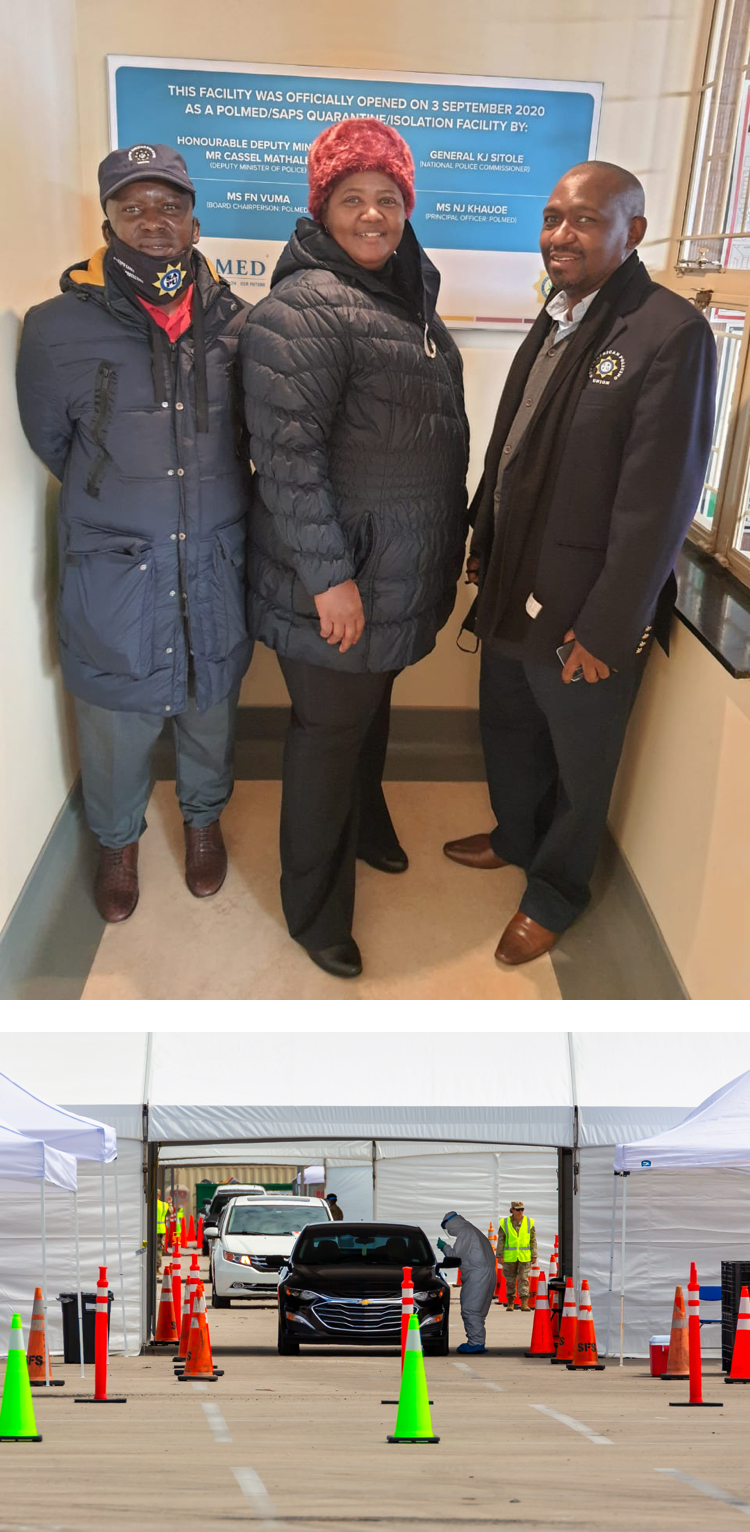

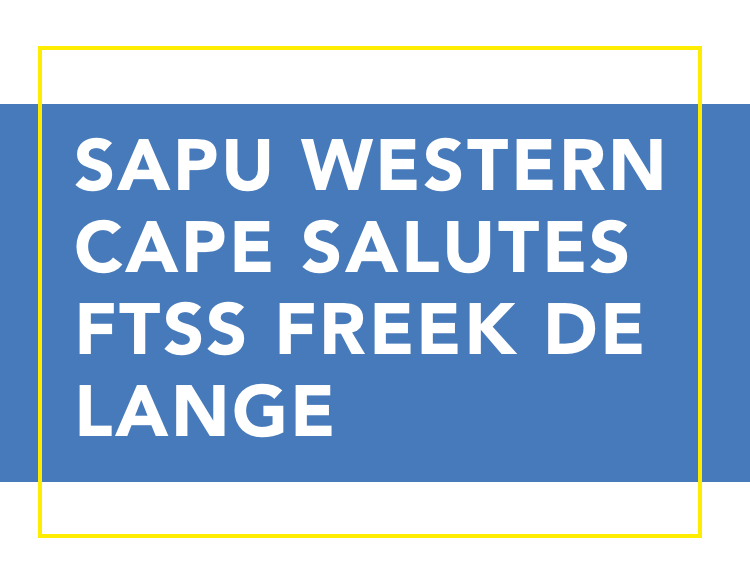
Western paid tribute to Full Time Shop Steward, Freek De Lange on his retirement on 30 June 2020 after 35 years of service in the South African Police Service (SAPS).
Freek joined SAPU when it was established and was an active shop steward in Oudtshoorn, fighting for the rights of his members. He absolutely loved the union and soon became the regional chairperson of the Southern Cape. Being a trainer in SAPS, he assisted in many training sessions for the union.
Many members went through his capable hands and were able to continue their careers in the SAPS due to his skills and knowledge during disciplinary proceedings. He is an expert in grievances and successfully represented members through the grievance process.
Freek did not only assist members with issues, but also assisted SAPS managers to accommodate our members, and in accordance with agreements and policies.
Freek will surely be missed in Southern Cape and Western Cape, and I would like to thank him for all the assistance and camaraderie through the years.
We wish him well in his future ventures and hope he will enjoy the time with his family!
We know he will always be part of the SAPU family!


I would like to thank my union of choice SAPU for giving me a bursary to further my studies. Now I have completed the Bachelor of Policing Practices Degree, and currently studying for a Bachelor of Policing Practices Honours.
SAPU is not only the union that represent its members in their cases, but also help their members to realise their dreams. It has transformative leaders who believe in doing the right thing, not doing things right. They believe that education is the key that opens many doors. I thank my union whole heartedly with this opportunity.
VIVA SAPU VIVA

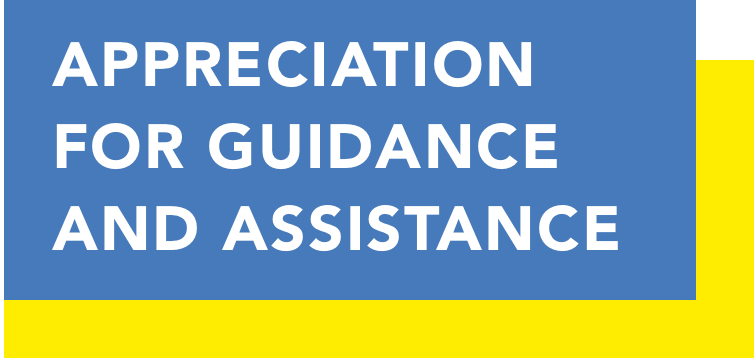
I would just like to express my gratitude and appreciation towards SAPU and especially the following individuals:
• Comrade Ivan Magerman, SAPU 2nd Vice President, for his guidance and assistance. He truly assisted me through the fear and confusion that beset on me.
• Comrade Simon Machebele for his expert guidance and professionalism in dealing with my departmental hearing and preparation thereto. He expertly defended me and ensured that we got a favourable verdict.
I am preparing for the first appearance in the criminal court now and as arranged will be in contact with your office for further legal assistance if need be.



NATIONAL OFFICE
086 192 7278 | pa.hq@sapu.co.za
85 Rauch Avenue, Georgeville, Pretoria, 0184
WESTERN CAPE
021 9304377 | pswc@sapu.co.za
3rd Avenue 105, Parow, Western Cape, 7530
NORTHERN CAPE
053 8324737 | psnc@sapu.co.za
21 Roper Street, North Kimberly, 8301
Gauteng
010 5918260 | psgp@sapu.co.za
98 Anderson Street, Corner von Brandis, Marshal Town, 20000
Kwa-Zulu Natal
031 2026890 | pskzn@sapu.co.za
30 Hopson Road, Glenwood, Durban
FREE STATE
051 4369585 | psfs@sapu.co.za
36 Keller Street, Westdene, Bloemfontein
EASTERN CAPE
041 3650101 | psec@sapu.co.za
38 Pickering Street, Newton Park, Port Elizabeth
NORTH WEST
018 2944336 | psnw@sapu.co.za
17 Maury Avenue, Potchefstroom, 2520
LIMPOPO
015 2911769 | pslp@sapu.co.za
8A Church Street, Polokwane, 0700
MPUMALANGA
013 2828038 | psmp@sapu.co.za
Cnr. Hensban @ Madiba Drive, Suite A, Promenade Shopping Centre, Nelspruit, 1200
